For the first two weeks of our time worldschooling in Ghana, we participated in a cultural immersion program that gave us a wonderful introduction to the area and its people. We had the pleasure of sharing an itinerary with two other African American families, so my kids made new friends the moment we arrived, and I can’t imagine a better way to get started on our West African explorations.
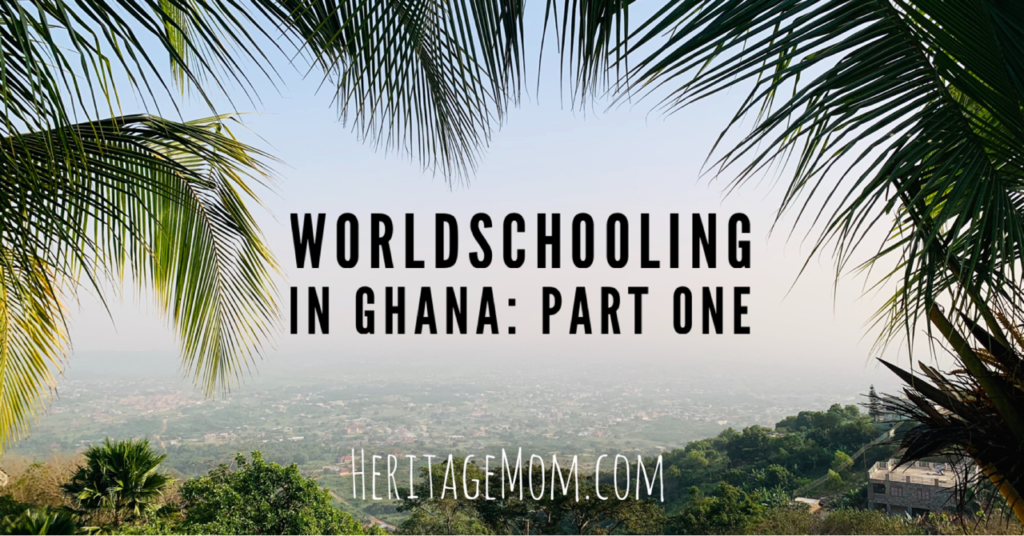
What we did while worldschooling in Ghana:
Day 1: Welcome to the Motherland! We were greeted at the Accra airport by our hosts and driven to our “home away from home” Legassi Gardens. The compound is in a neighborhood about 15 minutes outside the city of Accra. On arrival, we enjoyed a light meal and brief introduction before retiring to our apartments.
Day 2: Orientation and relaxation – We didn’t need to recover from jet lag because we’d been staying in Paris with a time difference of only one hour, but we still appreciated the leisurely day to get to know the other families in our program and to walk around the Pokuase area to exchange money and purchase a few essentials. For dinner, we took Bolt (similar to Uber) to Achimota Mall for dinner.
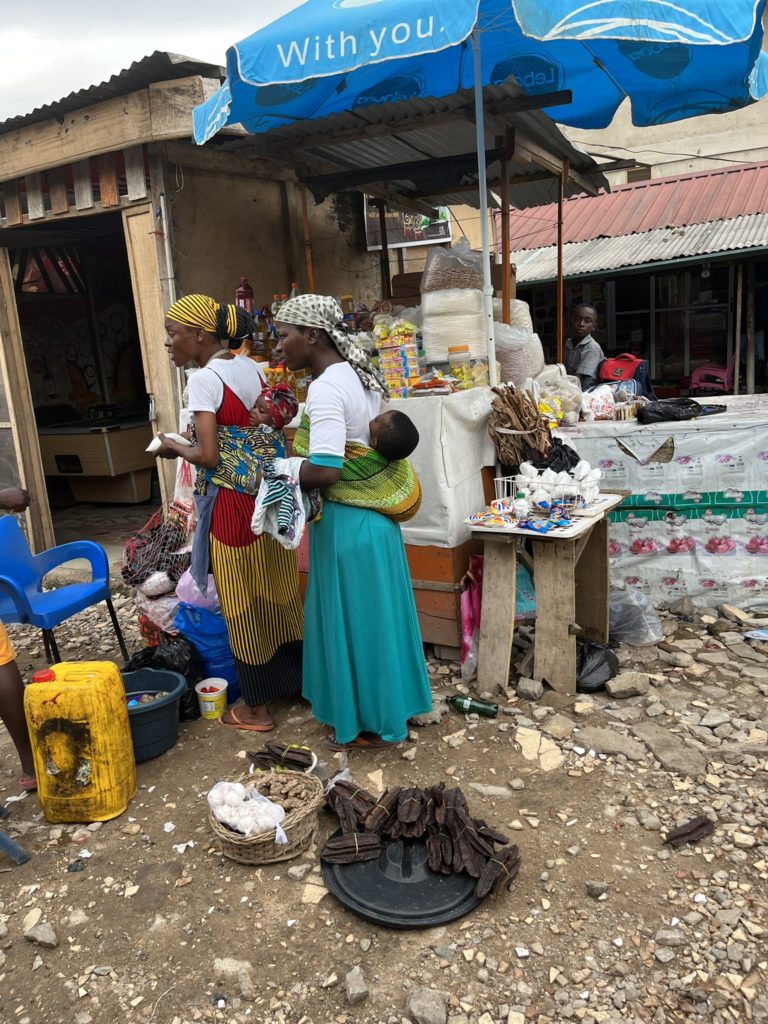
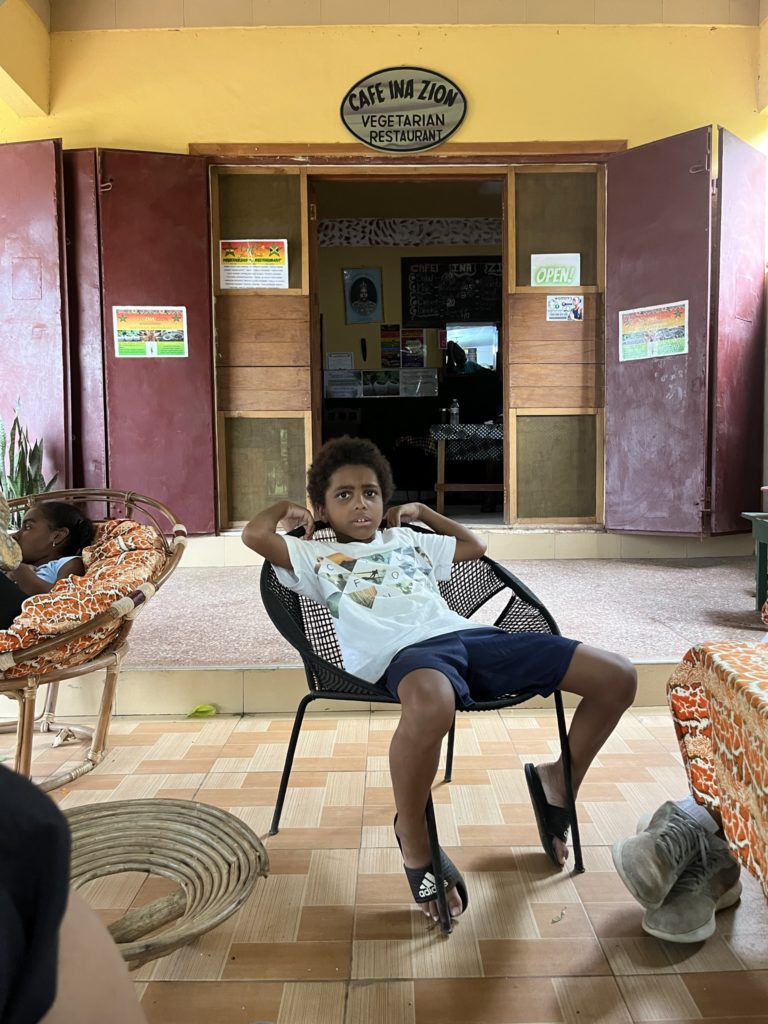
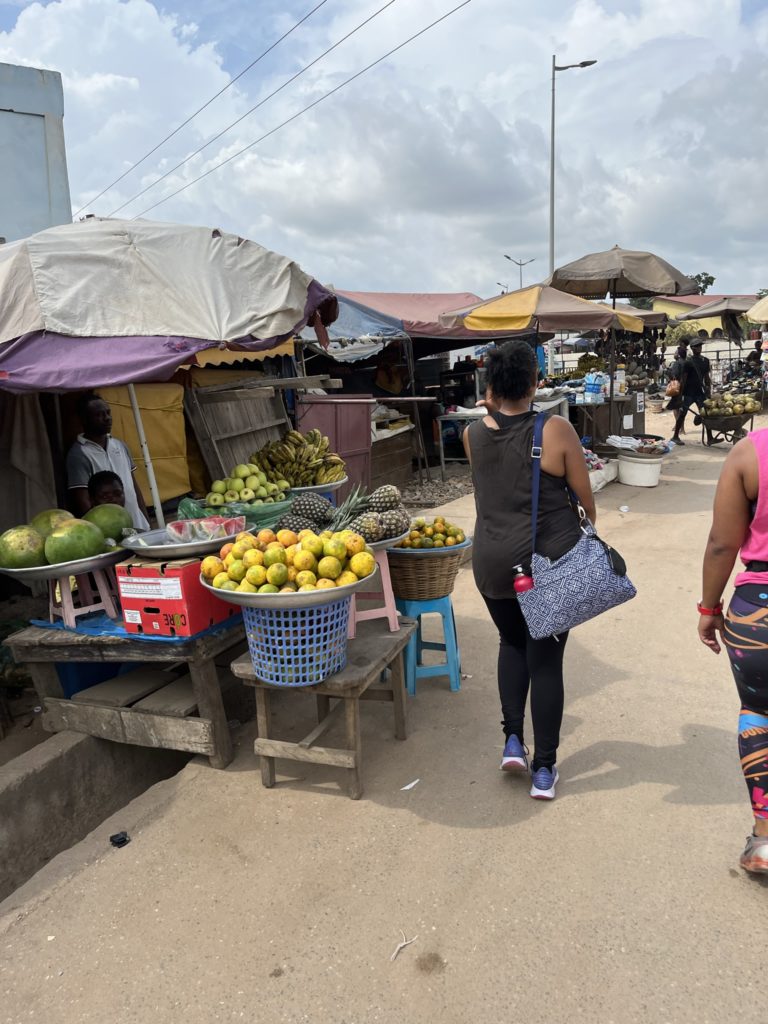
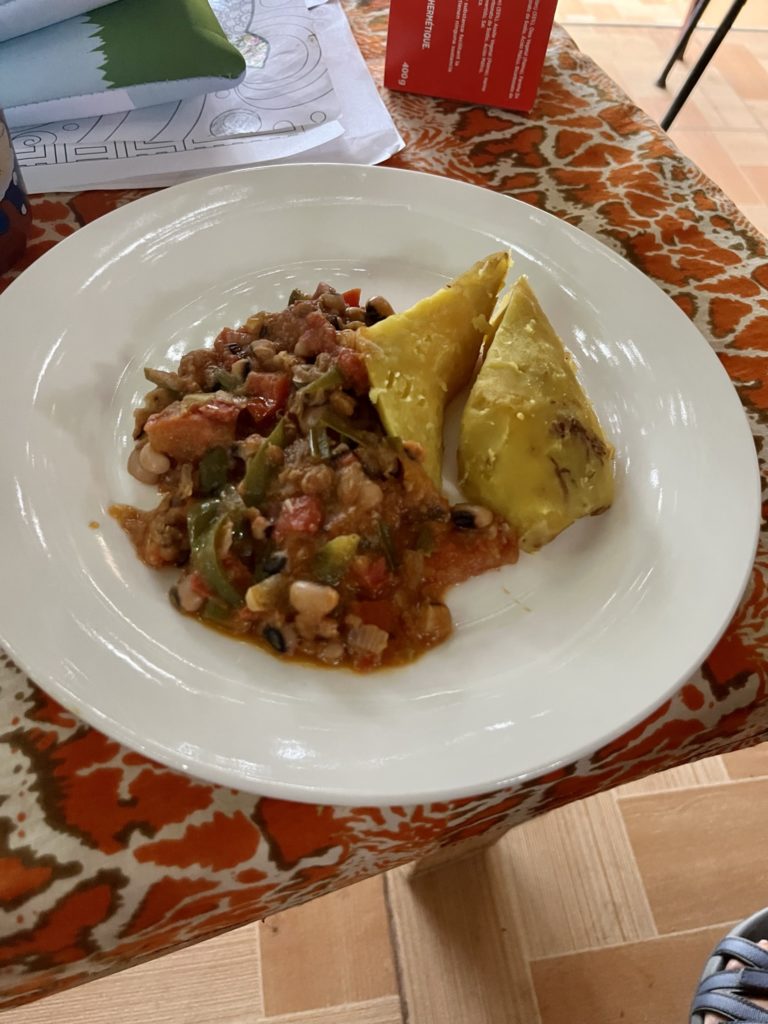
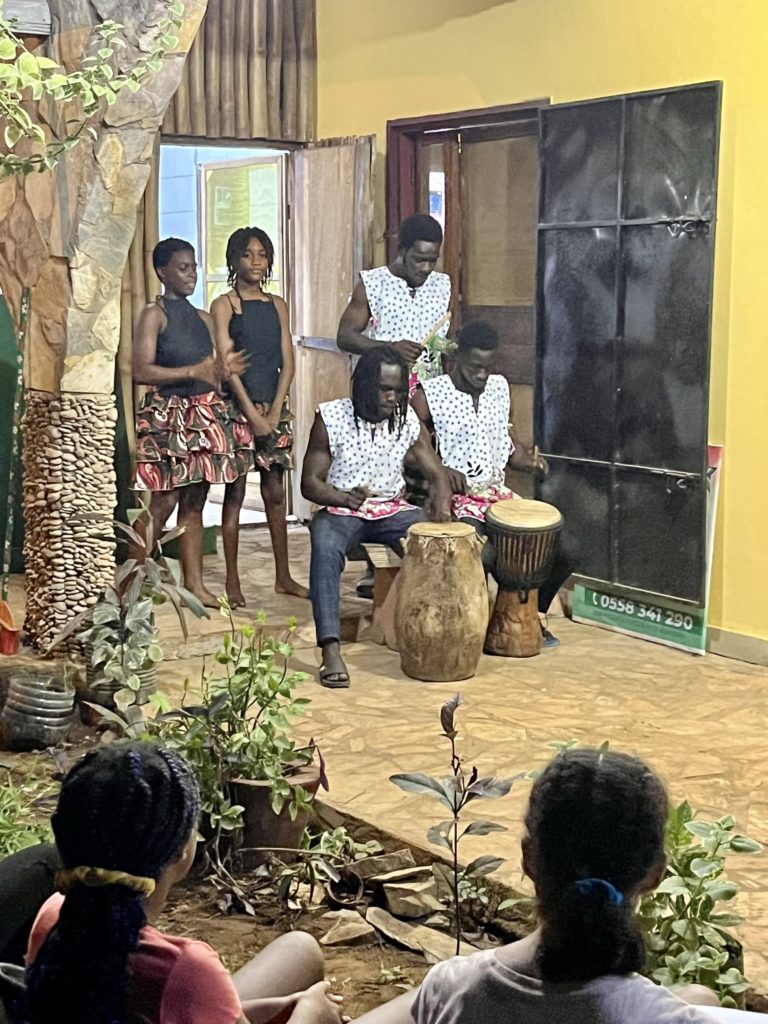
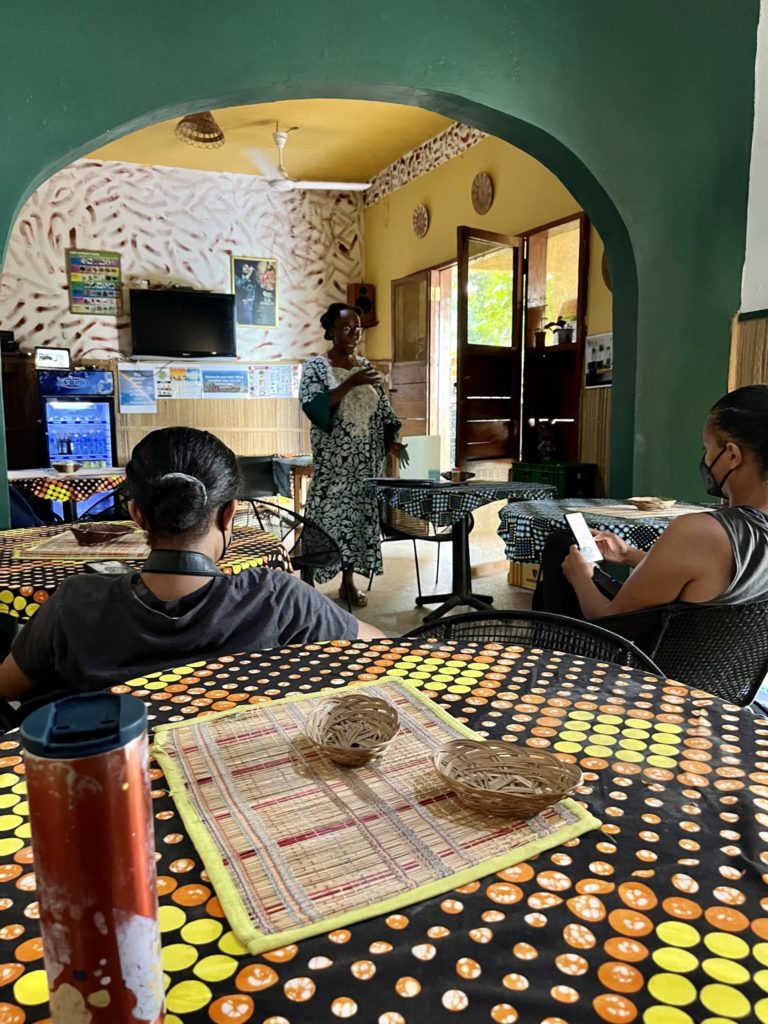
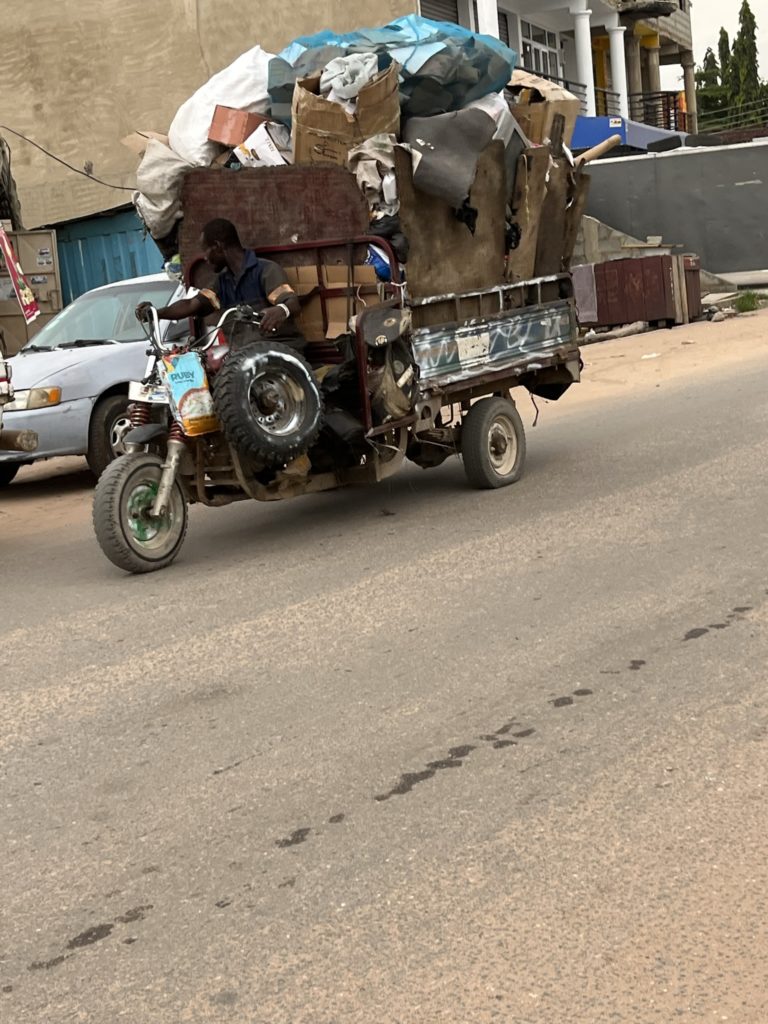
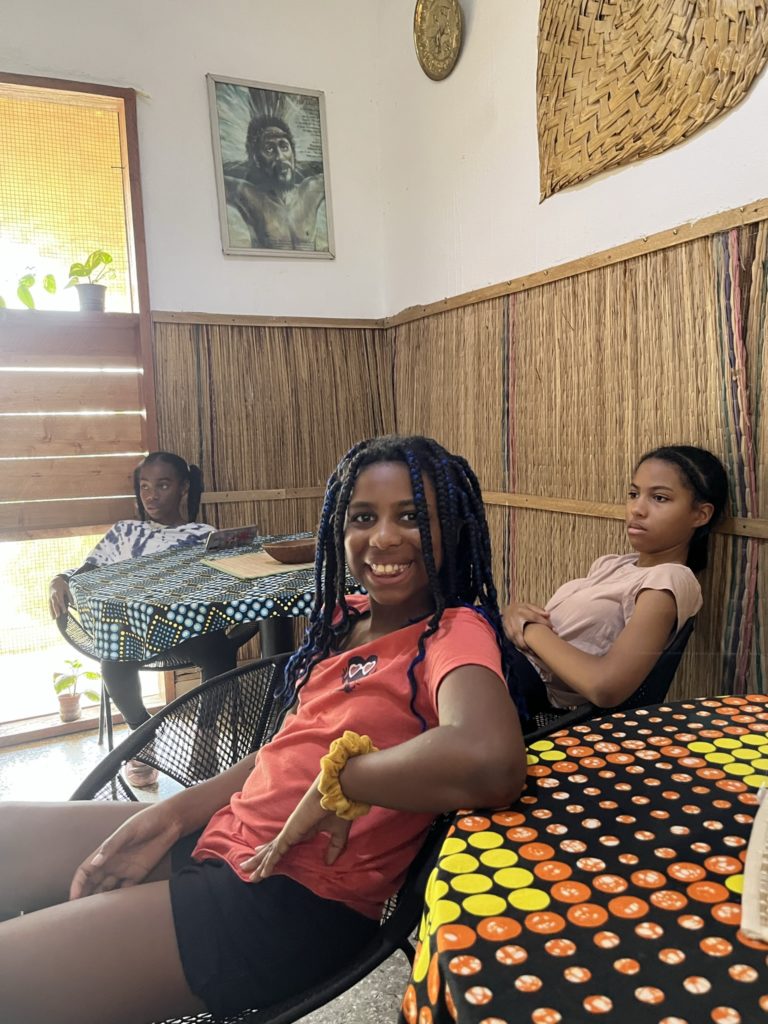
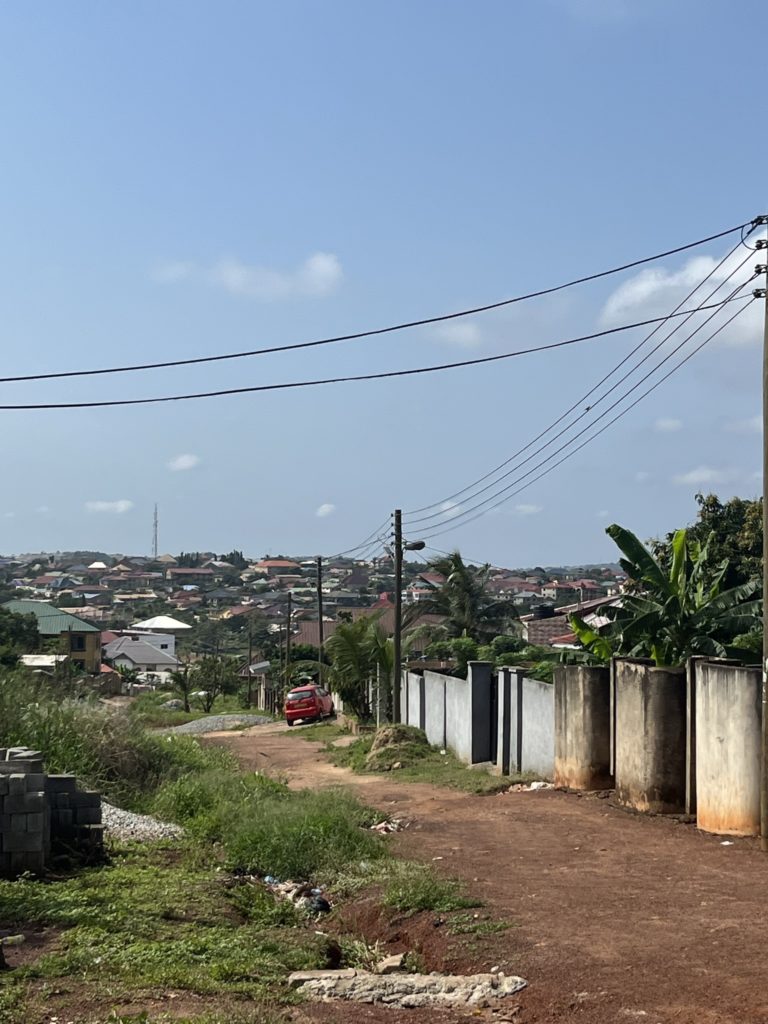
Days 3 & 4: School activities at The Spelmore Institute – Our host family (mom, dad, and two teenage daughters) are originally from Jamaica and the United Kingdom, but they’ve lived in Ghana for 25+ years. They run a number of entrepreneurial endeavors, and I’m amazed by their resourcefulness and vision. One of their projects is The Spelmore Institute, a small private school that our children visited frequently during our stay. It was only a 15-minute walk from our temporary home, and our time spent at the school was delightful in every way.
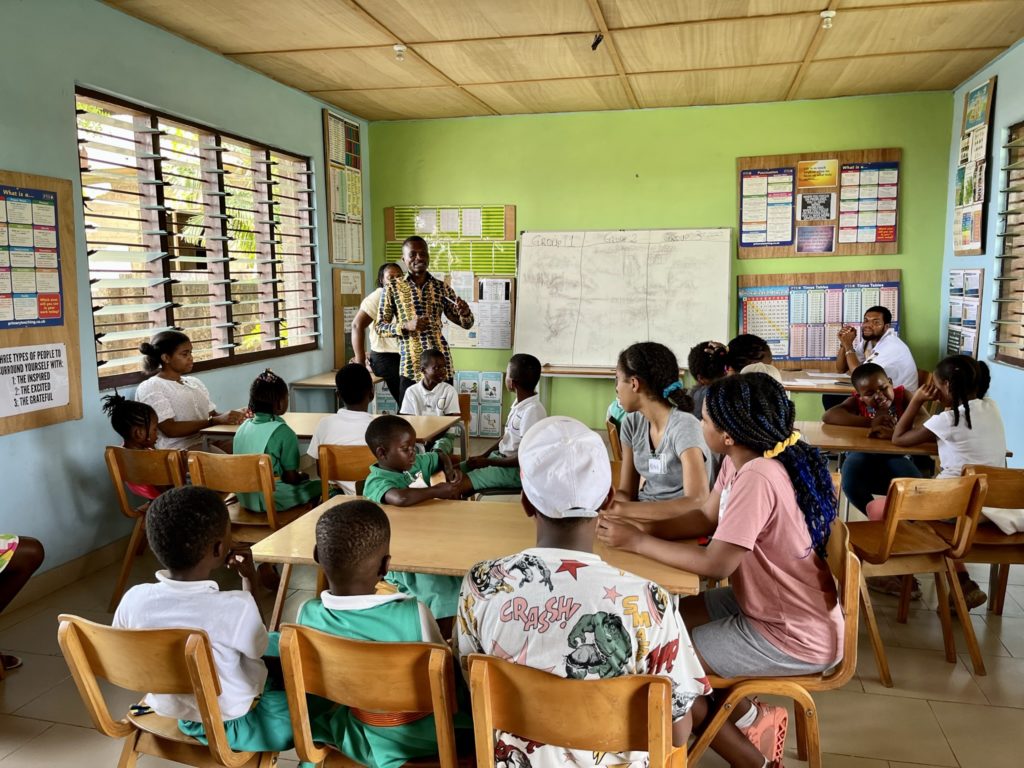
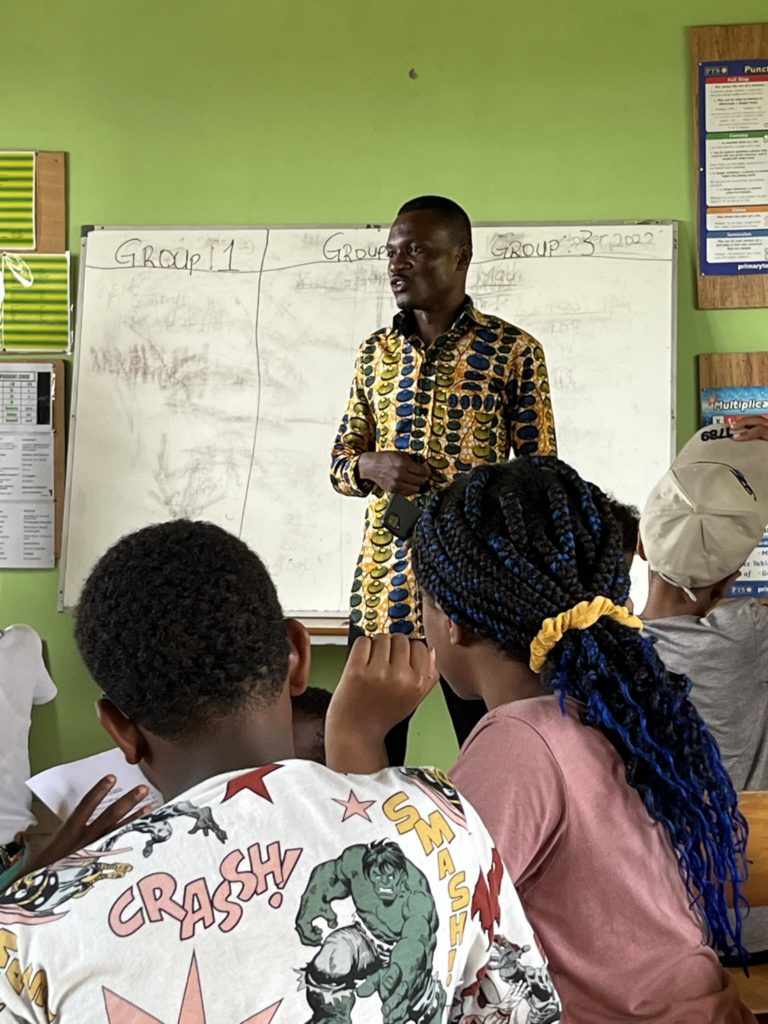
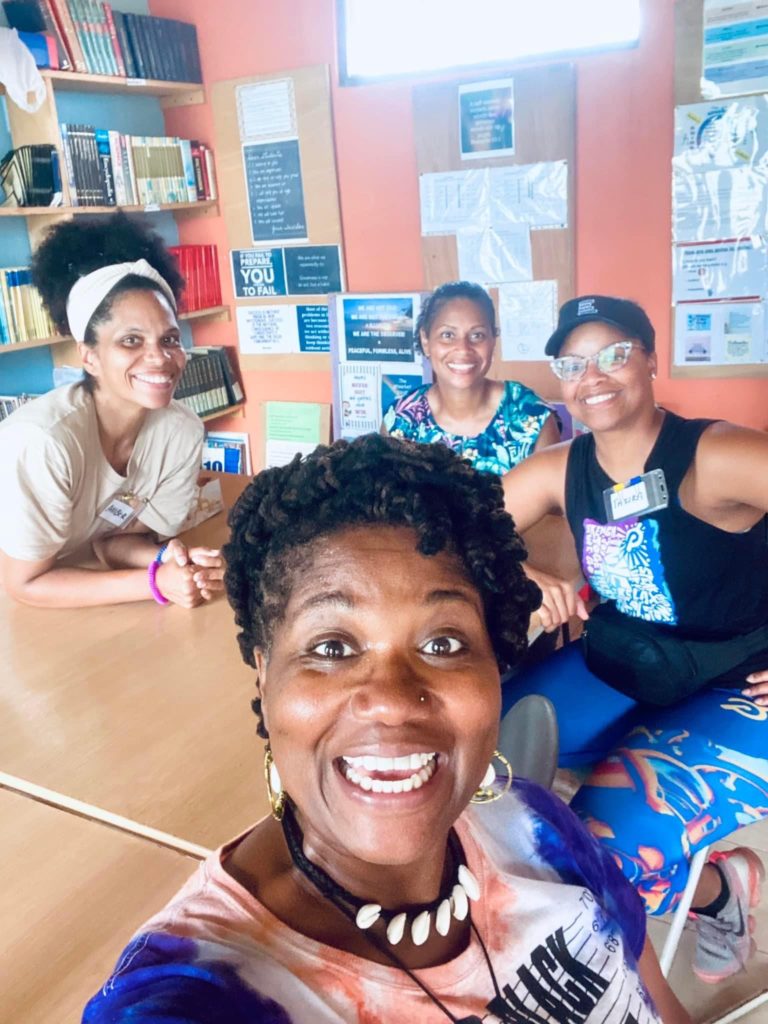
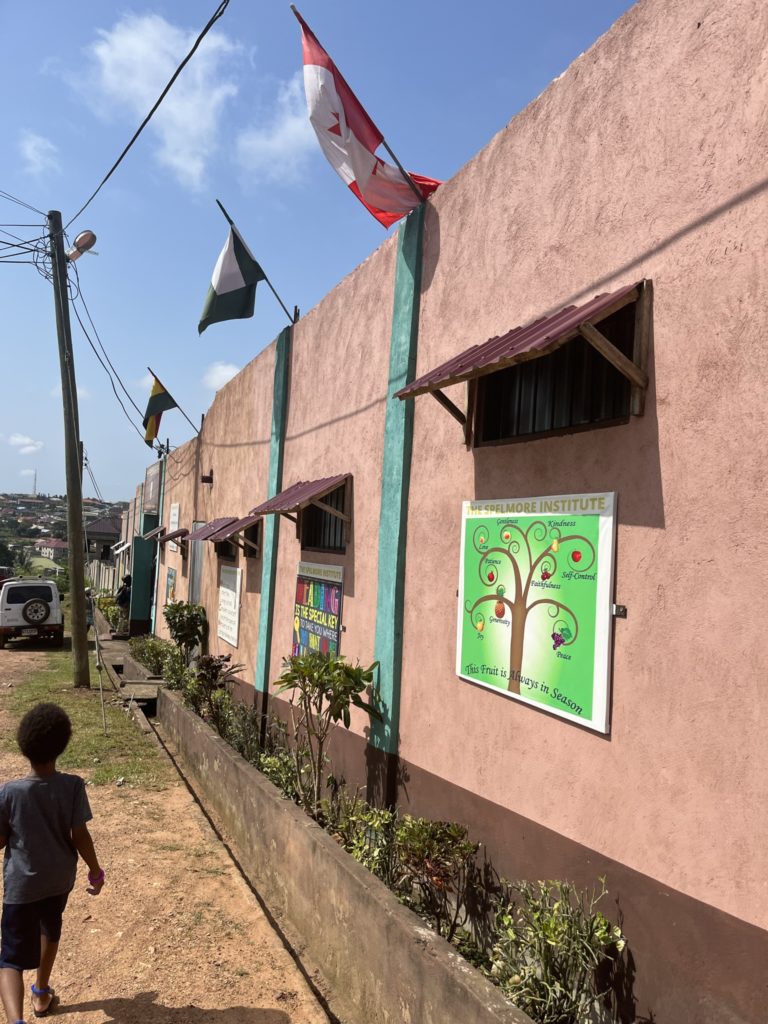
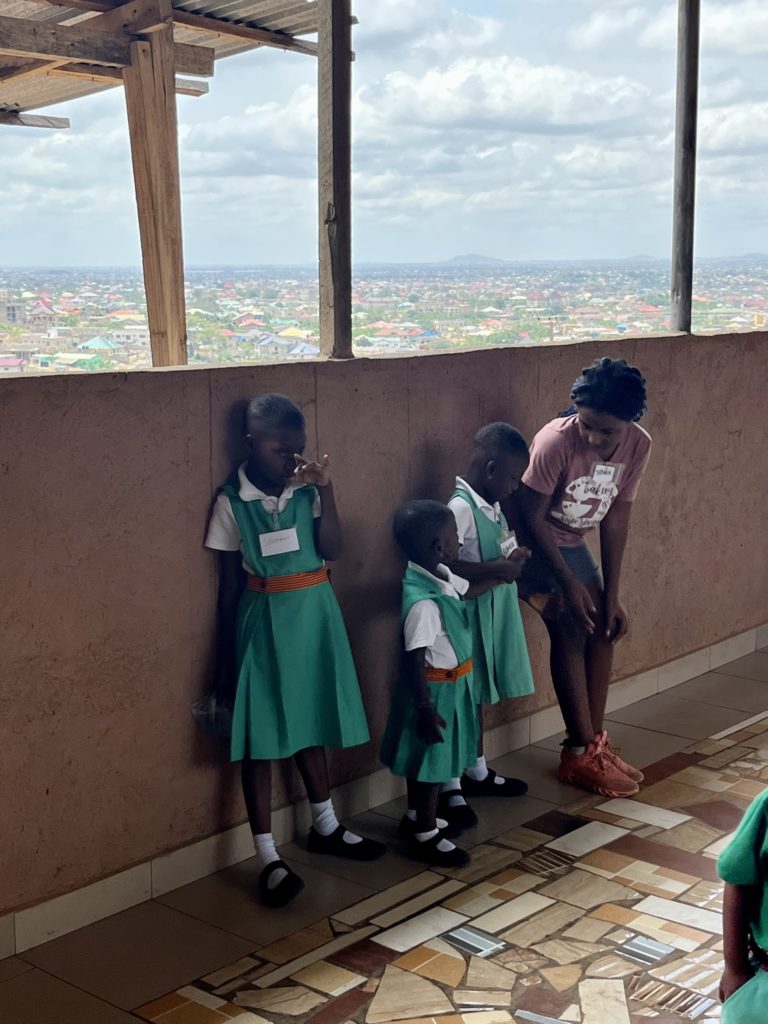
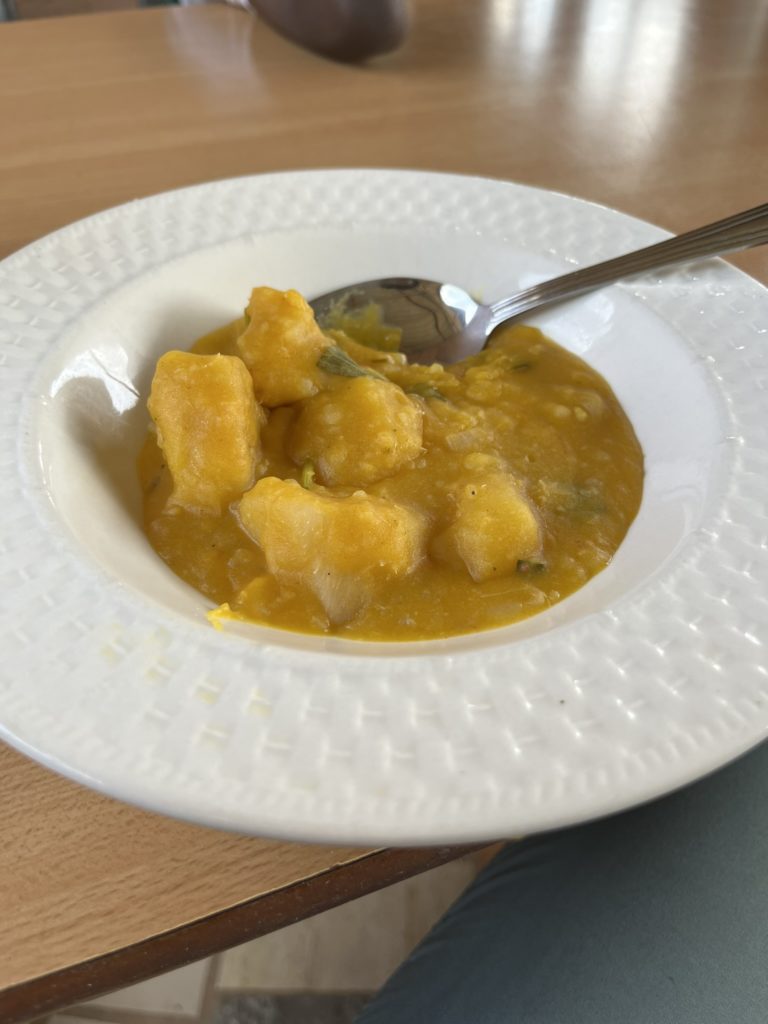
Day 5: Trip to Accra – Our hosts took us on a tour of the University of Ghana and the district of Jamestown, and those two places couldn’t have been more different. The university campus is a mix of old and new, familiar and novel. At times, it looked just like any major university we’d seen in the U.S., albeit with different architecture, but it included a mix of things far more beautiful or far less modern, depending on where we were on campus. We spent a lot of our time in the university bookstore. I want to say that our desire was driven by all of the books, but I’m certain that the air conditioning played a major role.
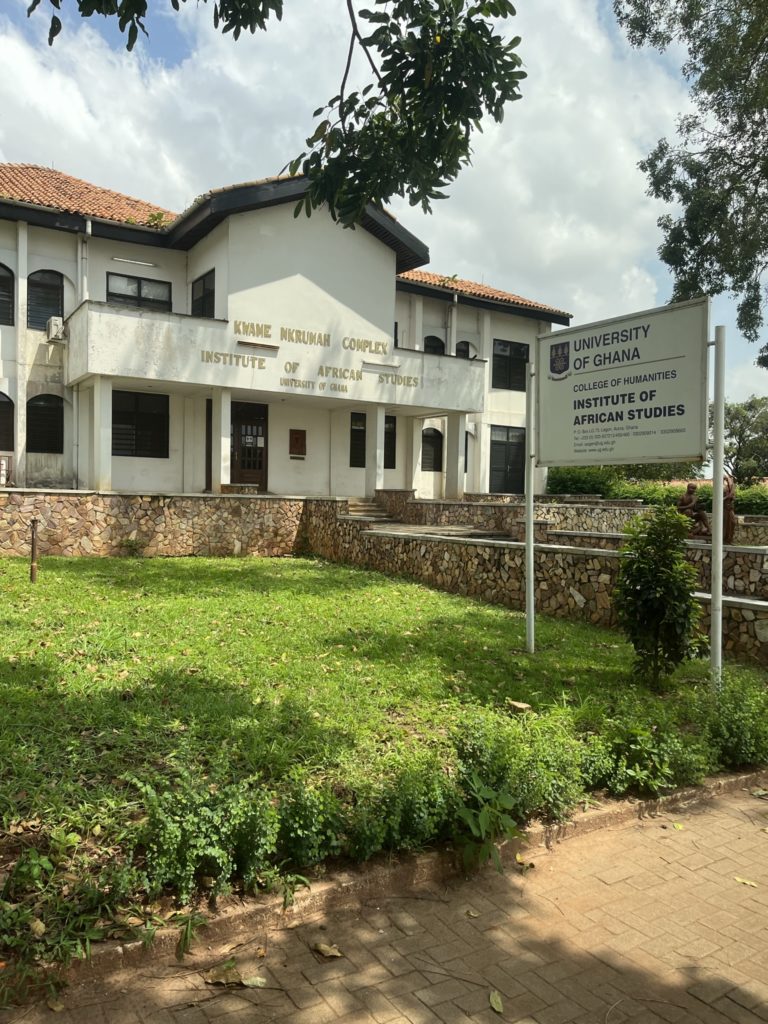
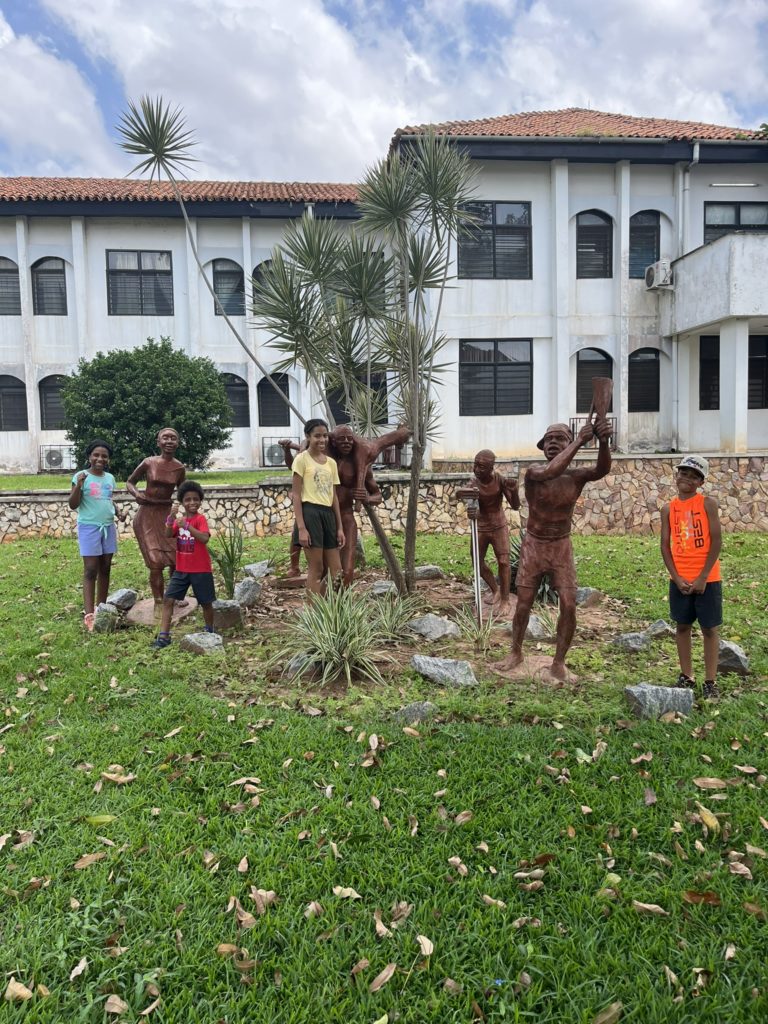
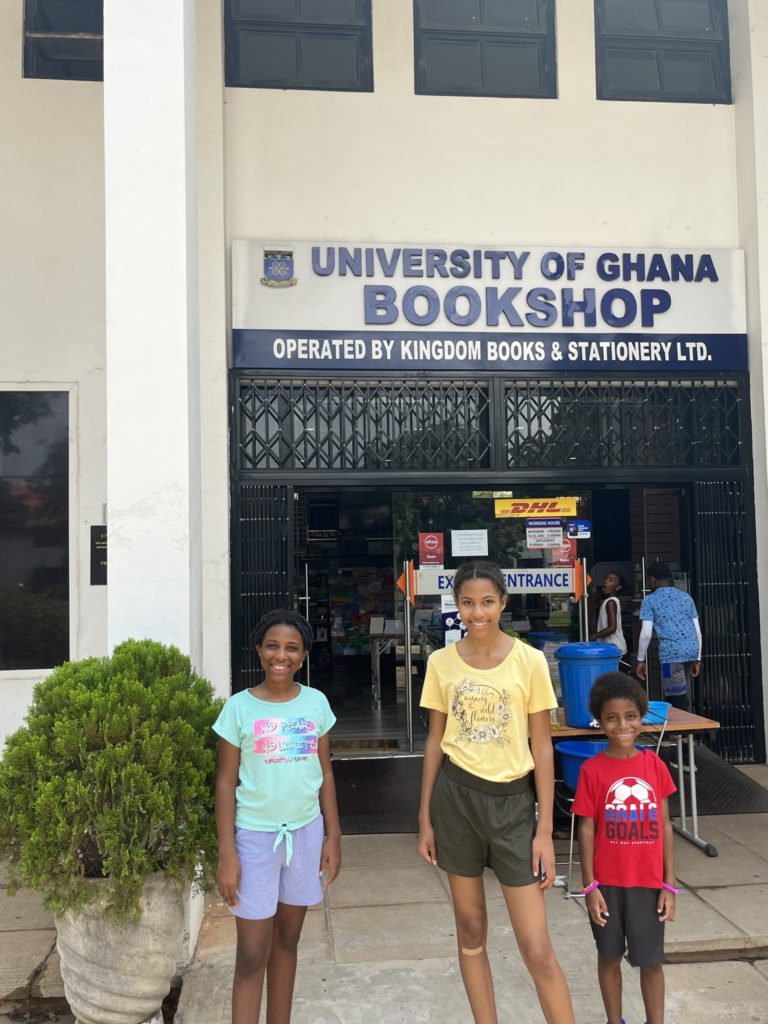
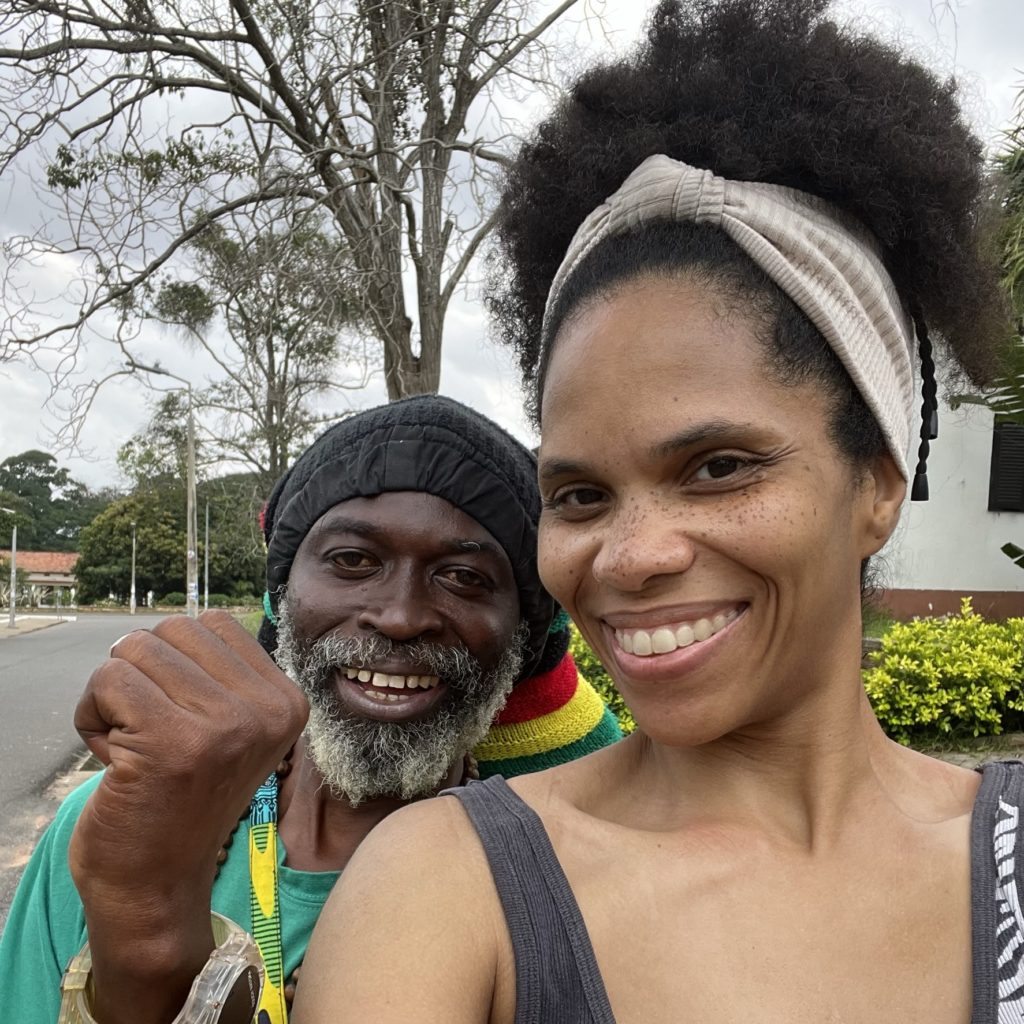
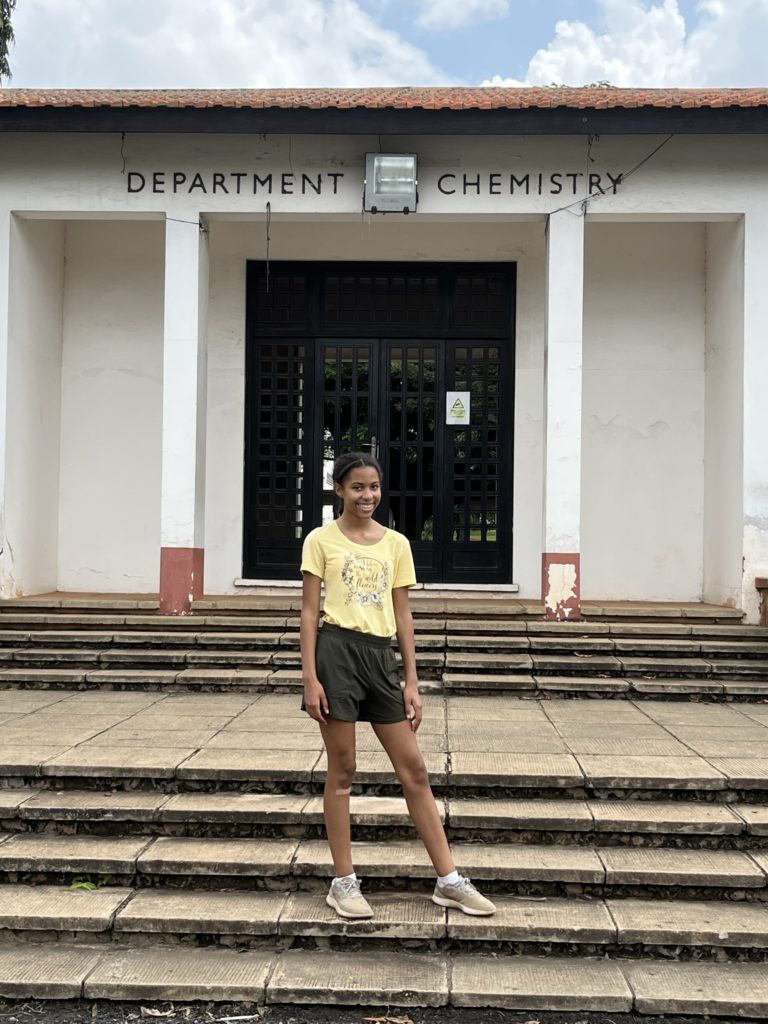
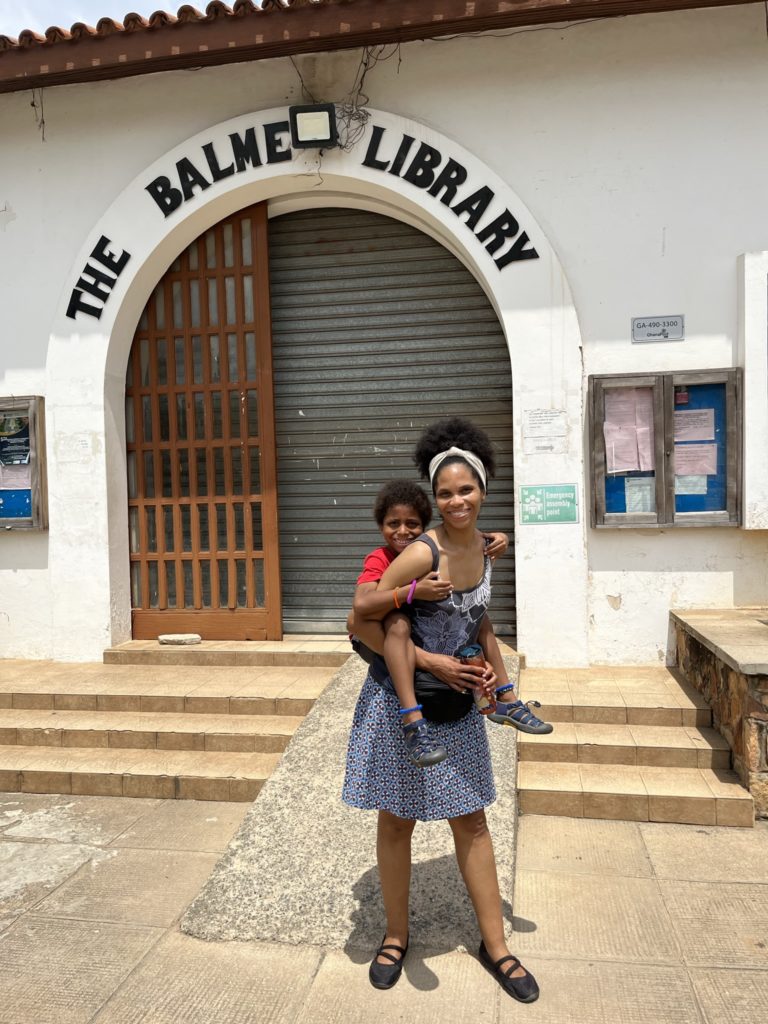
Jamestown is unlike anywhere we’ve ever been. It was bustling with people selling goods with the sound of the ocean’s waves in the background. We witnessed extraordinary poverty mixed with a hopeful energy that made us want to stay, explore, and talk to as many people as possible.
Jamestown originated as a community that emerged around the 17th-century British James Fort, merging with Accra as the city grew. These days, Jamestown is one the poorer neighbourhoods of Accra – full of beautifully dishevelled colonial buildings, clapboard houses and corrugated iron shacks – but it remains vibrant. For a great view of the city and the busy and colourful fishing harbour (haze and pollution permitting), climb to the top of the whitewashed lighthouse.
Source: Lonely Planet
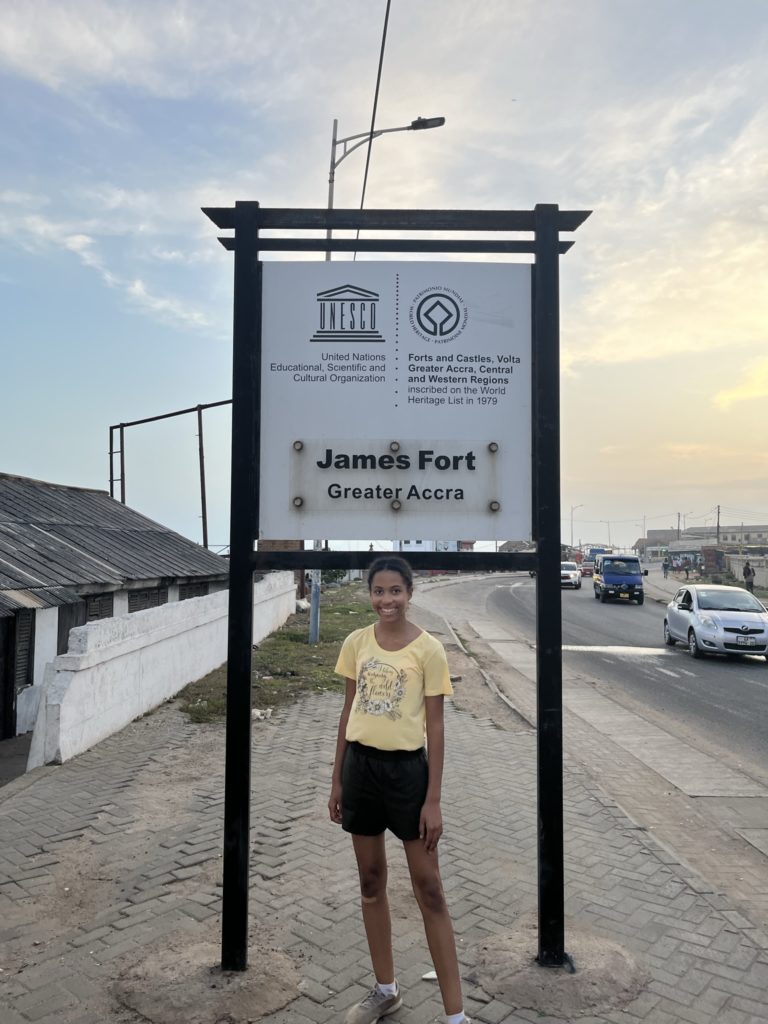
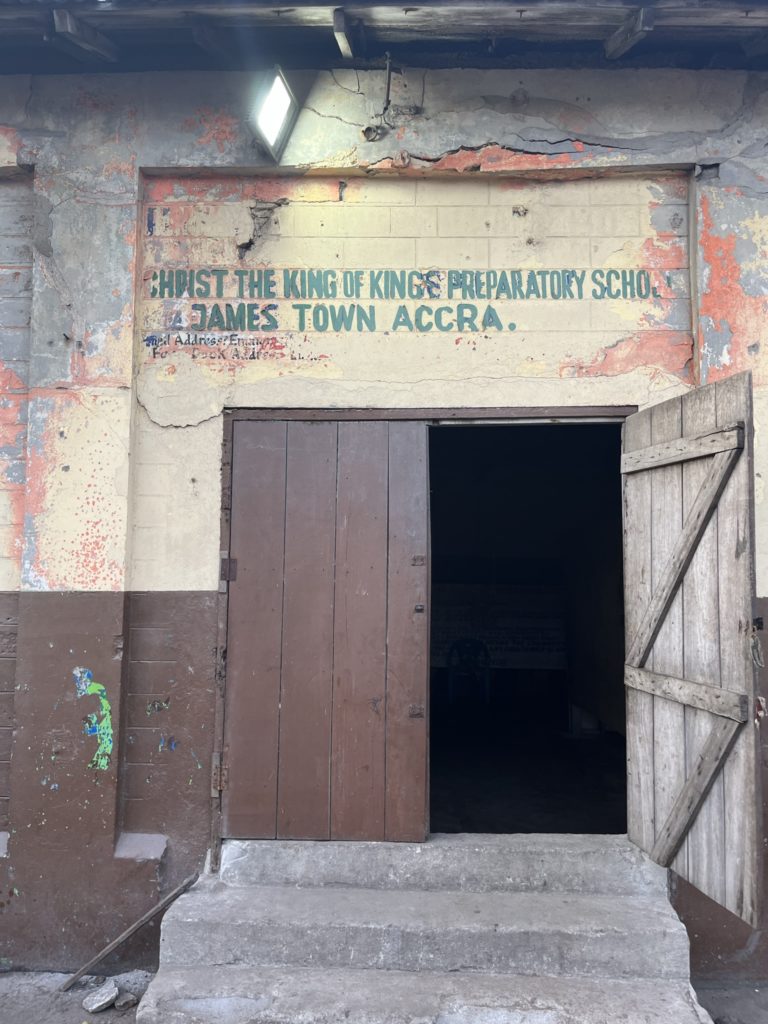
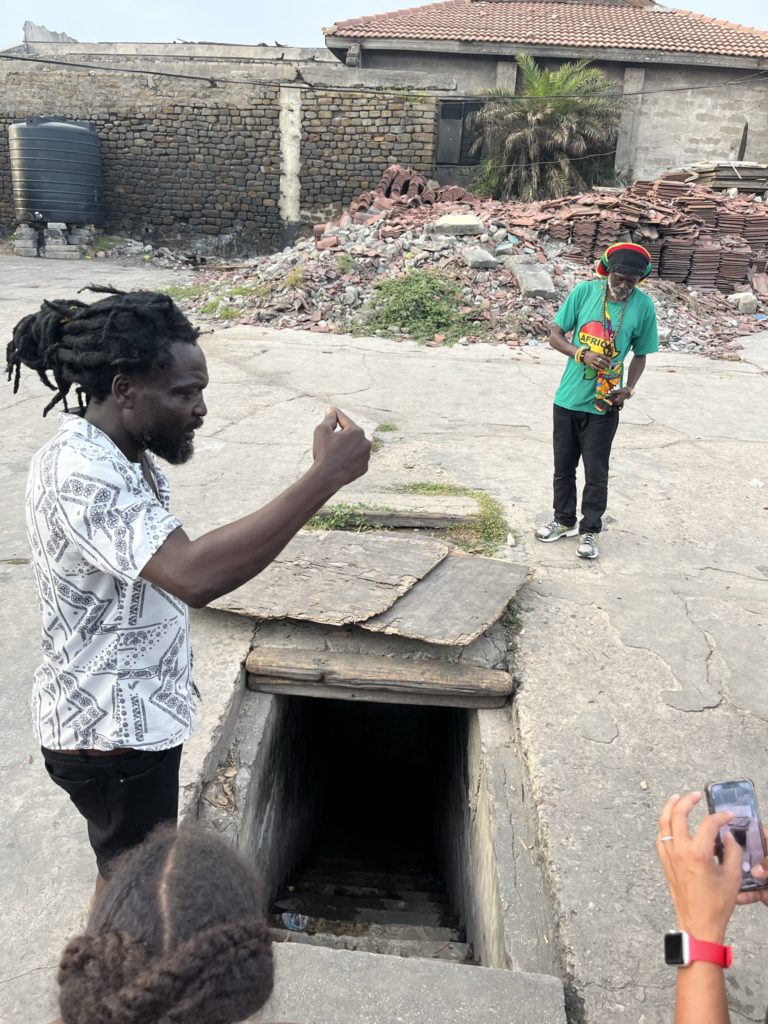
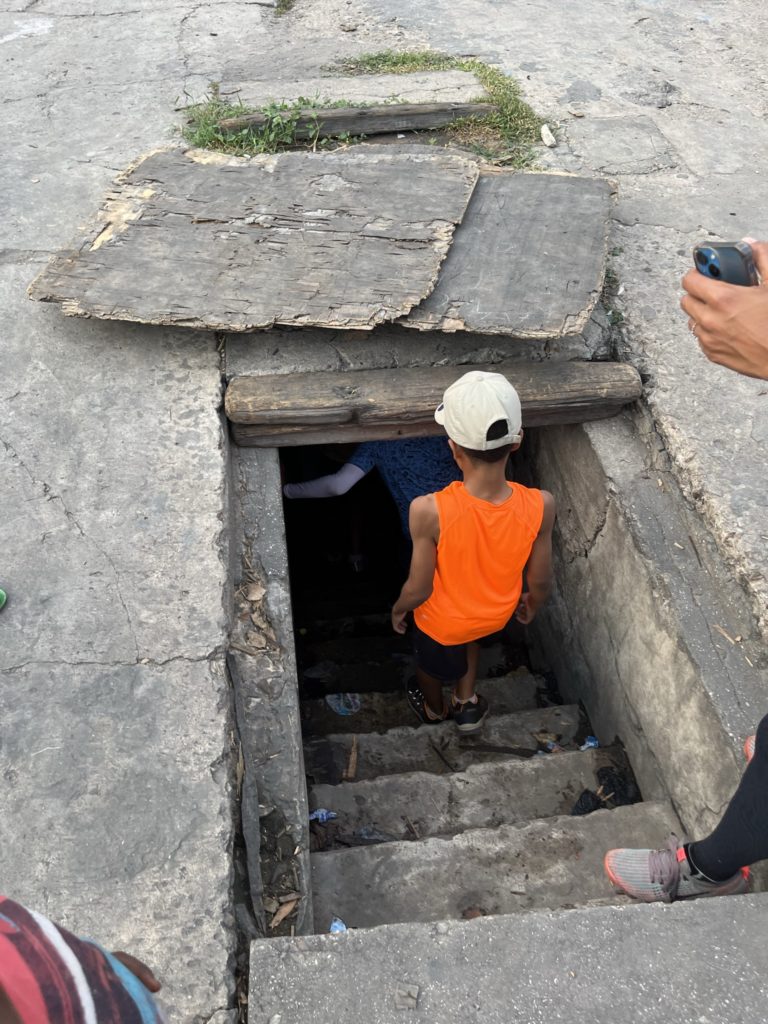
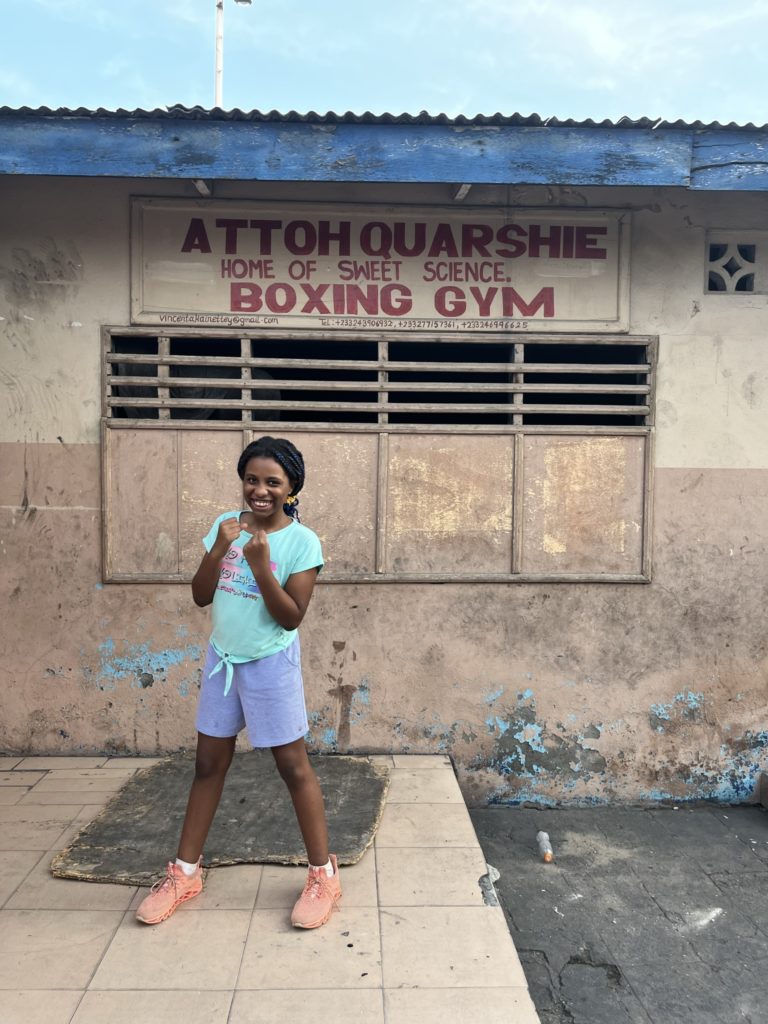
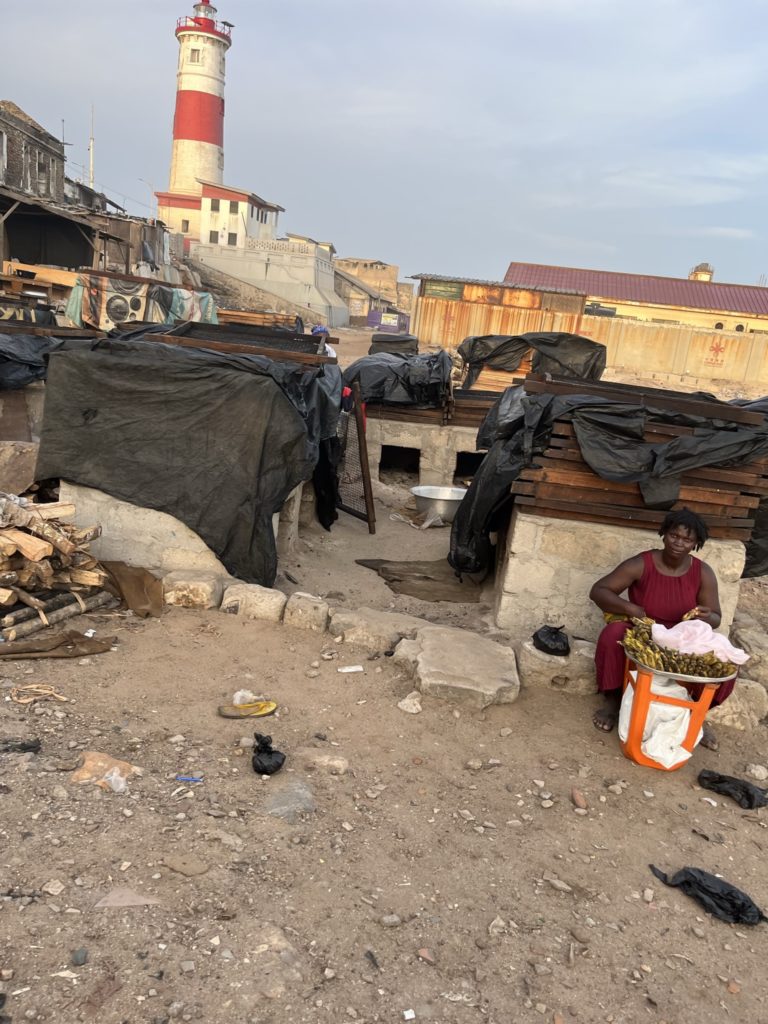
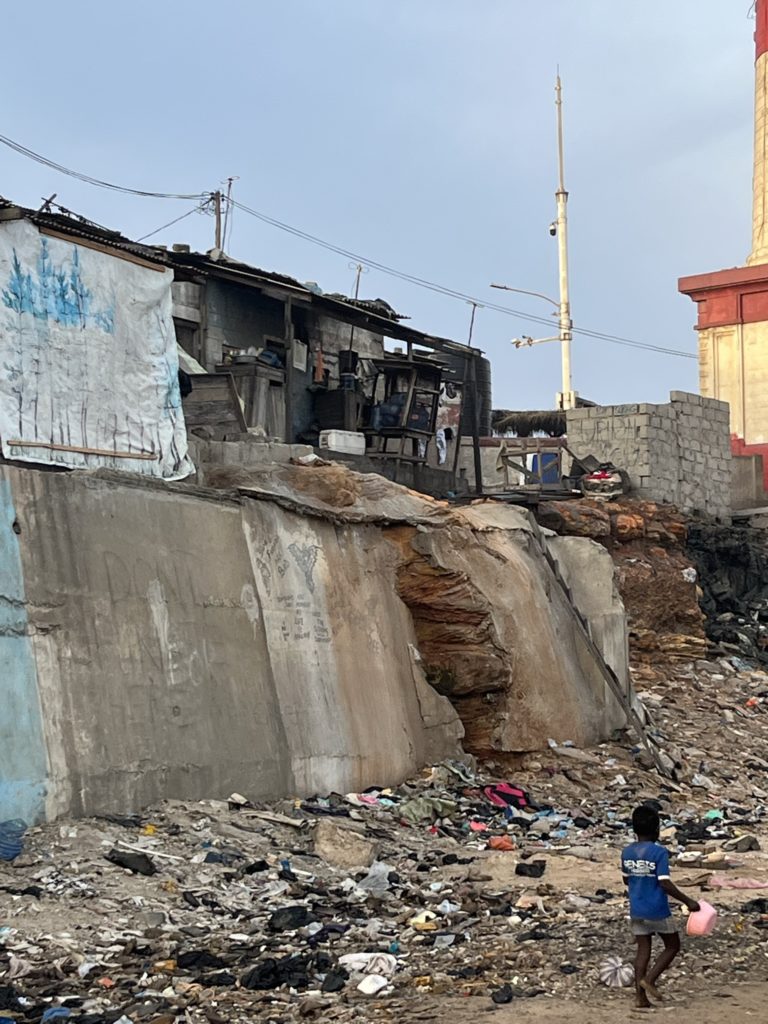
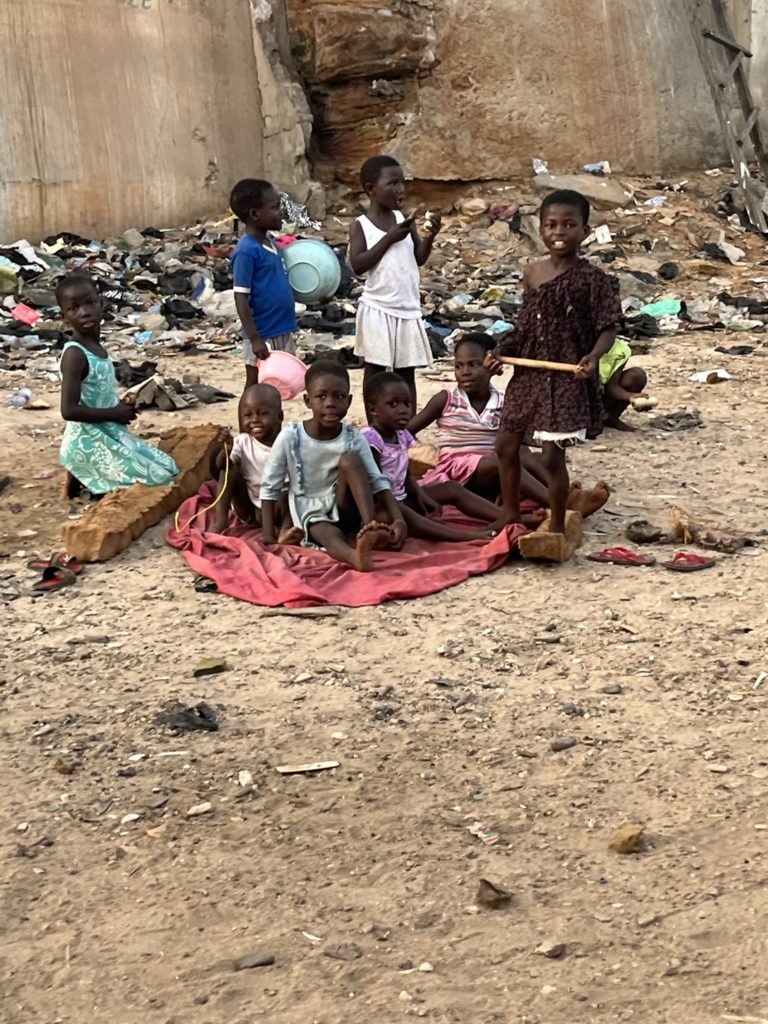
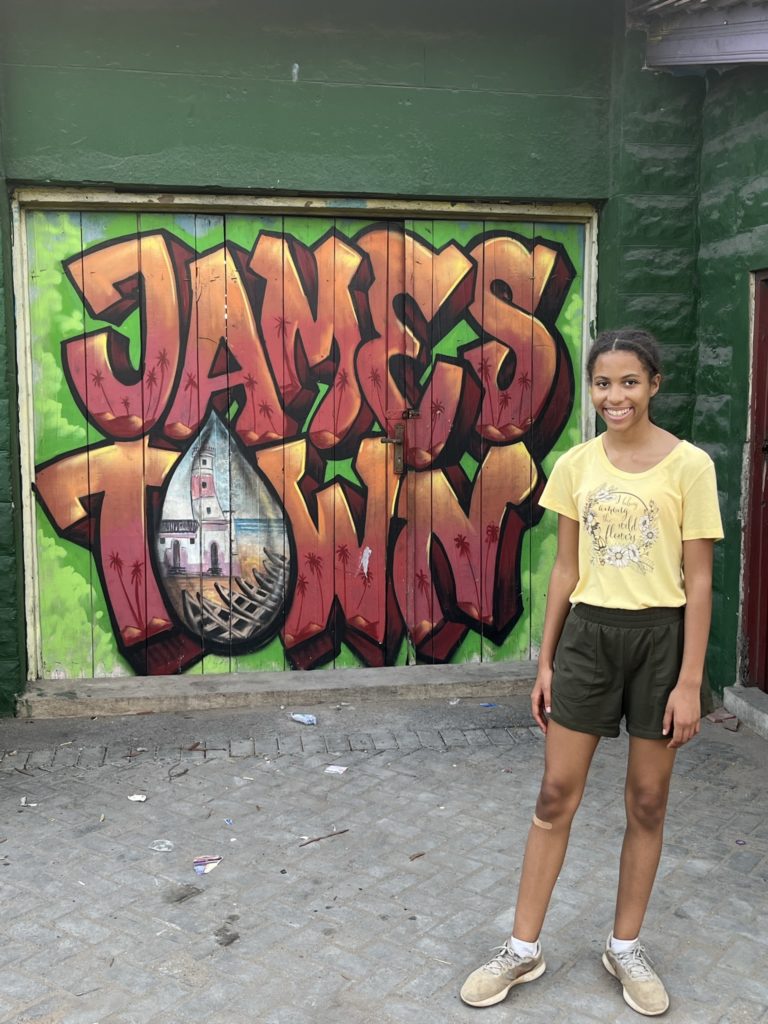
Our next stop was the W.E.B. DuBois Centre, a house declared a National Monument by the Government of Ghana where the remains of Dr. William Edward Burghardt DuBois (1868 – 1963) and the ashes of his wife, Shirley Graham, rest in a peace – enshrined, “that their memory will live among men and women in this generation and beyond.”
This was one of my favorite days because standing in the DuBois home with their furniture, books, and other artifacts was really special. I’ve written the foreword to a republished version of one of DuBois’ books, The Gift of Black Folk, and I’ve recommended multiple books written by Shirley Graham DuBois here on my site over the years. Bonus: The Roots Flavours restaurant behind the house ended up being one of our favorite lunch spots while in Accra.
At the end of his life, Du Bois embarked on an ambitious project to create a new encyclopedia on the African diaspora, funded by the government of Ghana. A citizen of the world until the end, the 93-year-old Du Bois moved to Ghana to manage the project, acquiring citizenship of the African country in 1961. Du Bois died in Ghana on Aug. 27, 1963, the day before the historic March on Washington.
Source: NAACP
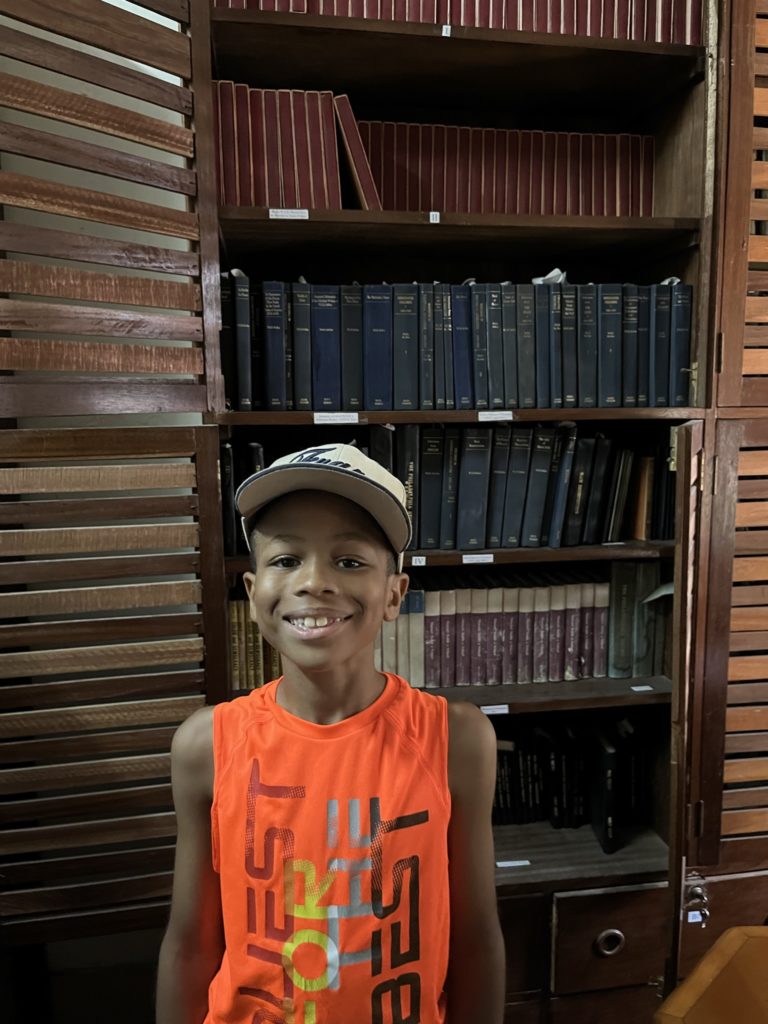
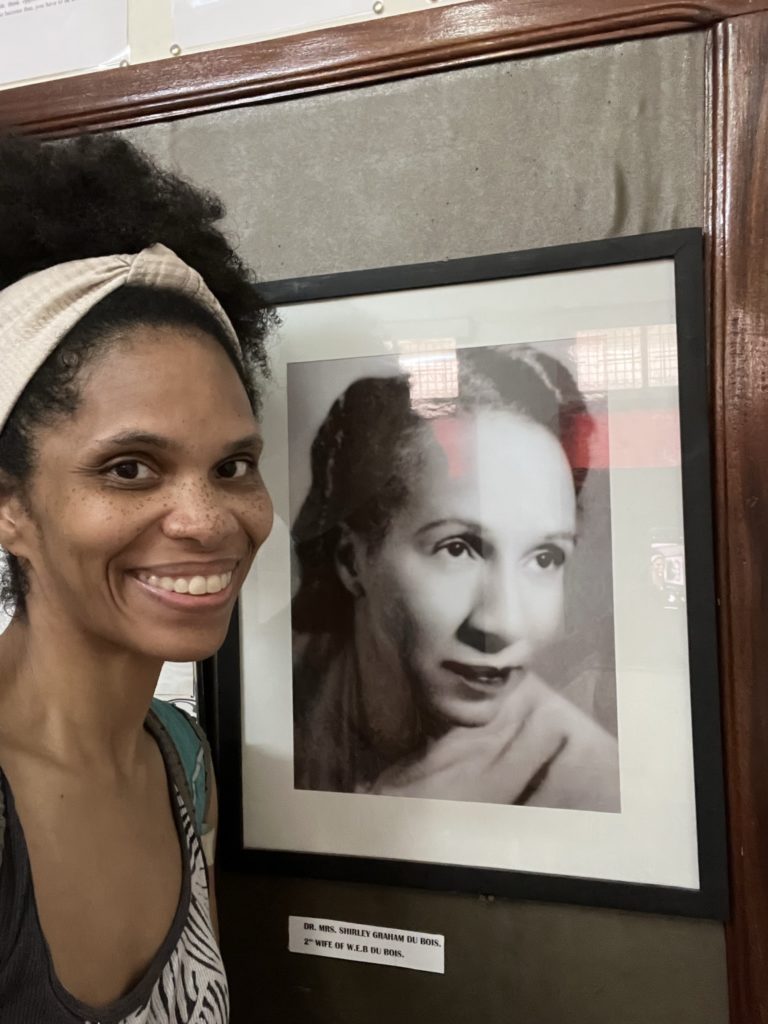
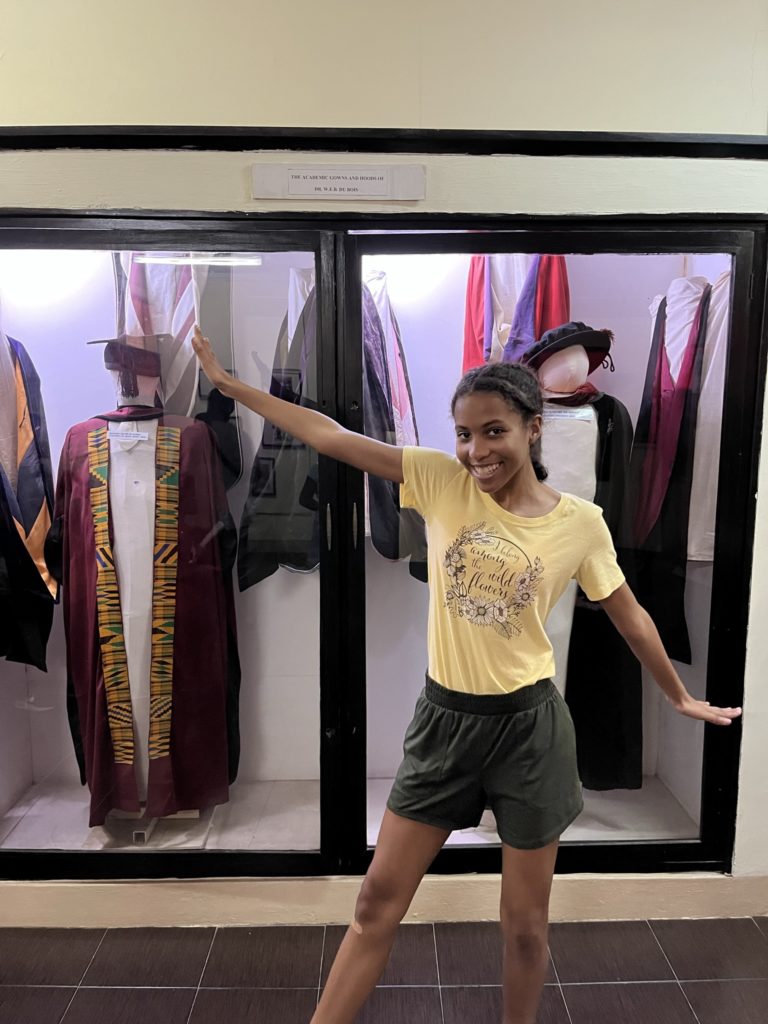
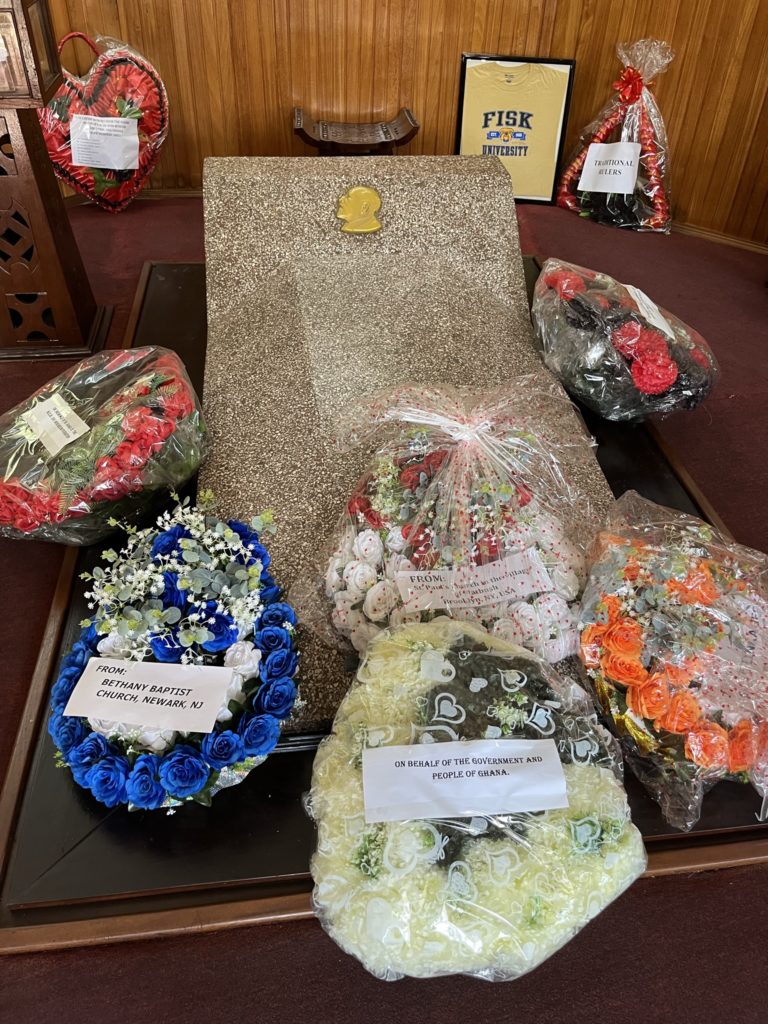
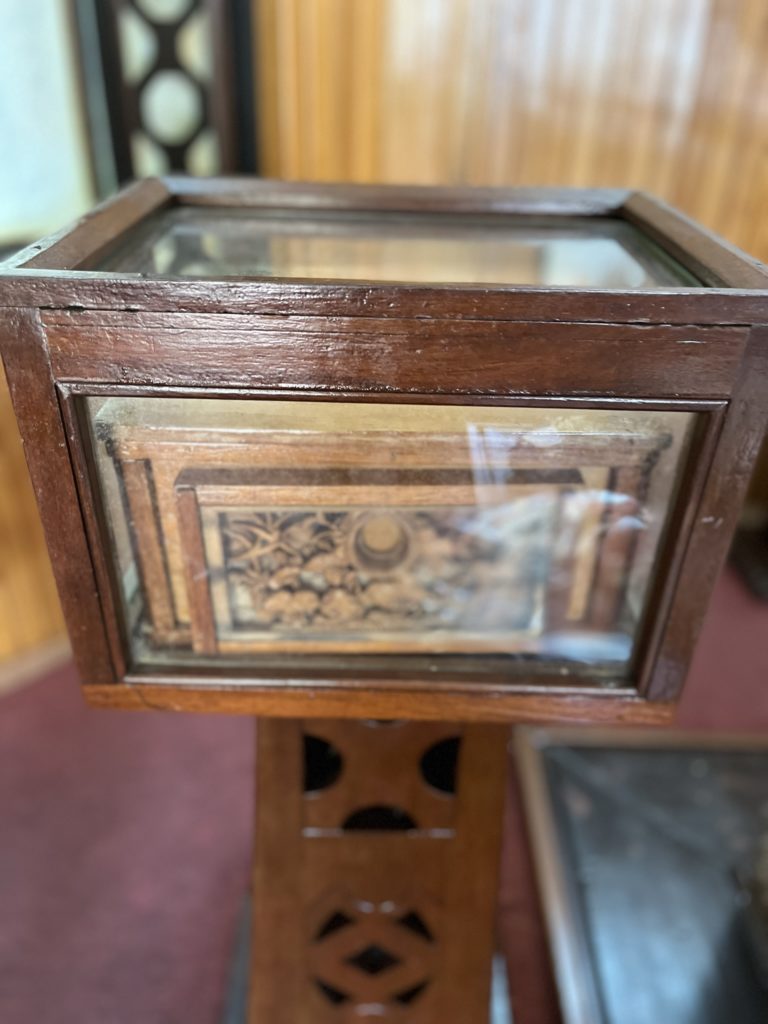
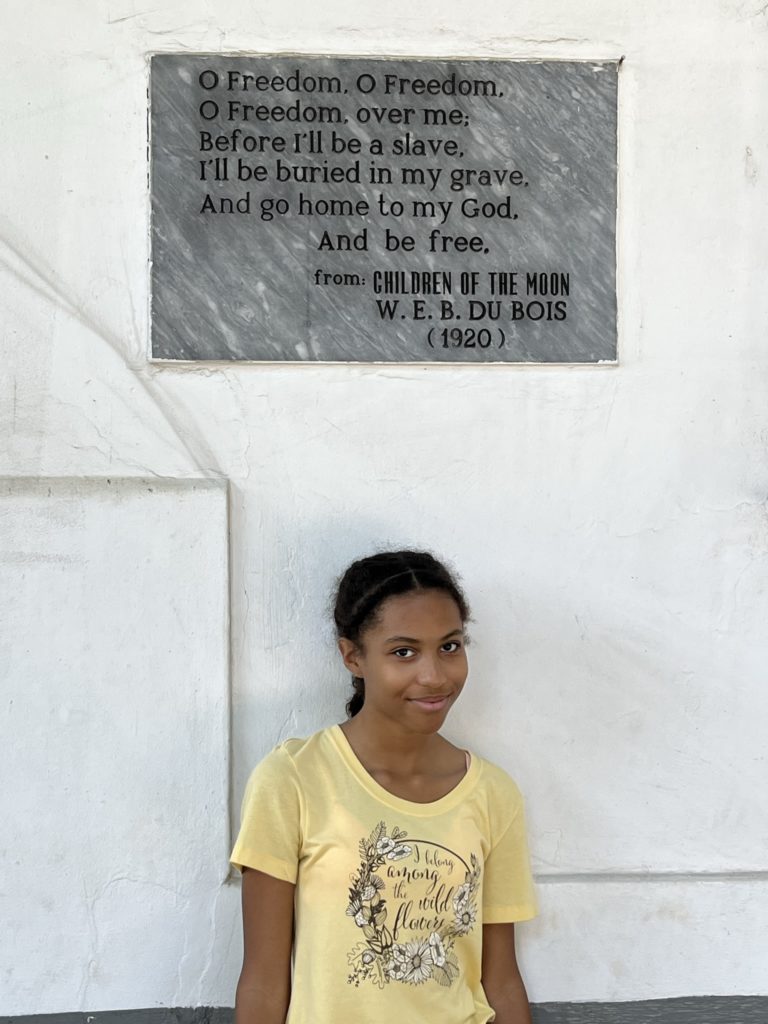
Day 6: Lunch with new friends – The other families in our group spent the day at Aburi Gardens, but I knew that we’d visit later in our trip so my family met up with a Ghanaian family (introduced through mutual friends) for lunch. We ate at Imperial Peking Chinese Restaurant, and it was delicious. Surprisingly (to me), there is a TON of Chinese food in Accra. Honestly, we were just as likely to encounter fried rice as jollof rice as we ate our way around the city.
Day 7: School activities at The Spelmore Institute – My kids spent another day “enrolled” in school, and they had just as much fun as they had earlier in the week. Before lunch, we all participated in a dance class, complete with drummers, and it was an extremely fun (and humbling) experience.
Day 8: Trip to Cape Coast – I’m going to write a separate post on just this outing because we experienced too much to include here. This was one of the most physically and emotionally exhausting and exhilarating days of our entire trip. Cape Coast Castle is one of several sites in Ghana where captive Africans were assembled, confined, and led to the beach to board slaving vessels waiting offshore. We took a guided tour of the castle and its dungeons, and it was life-changing.
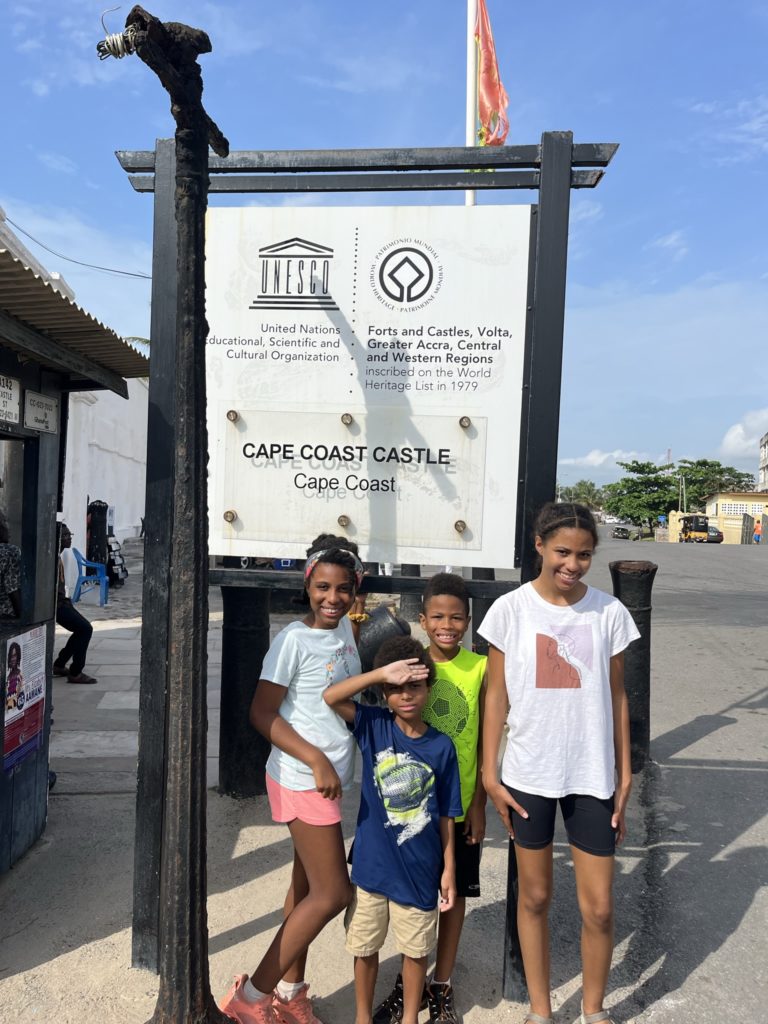
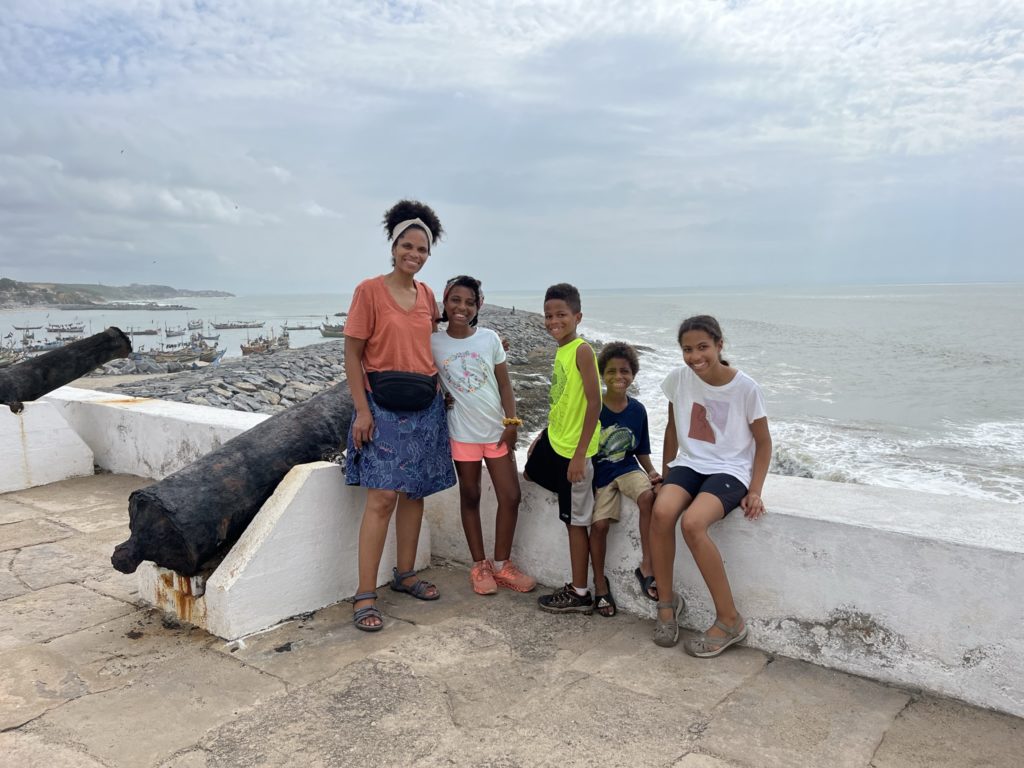
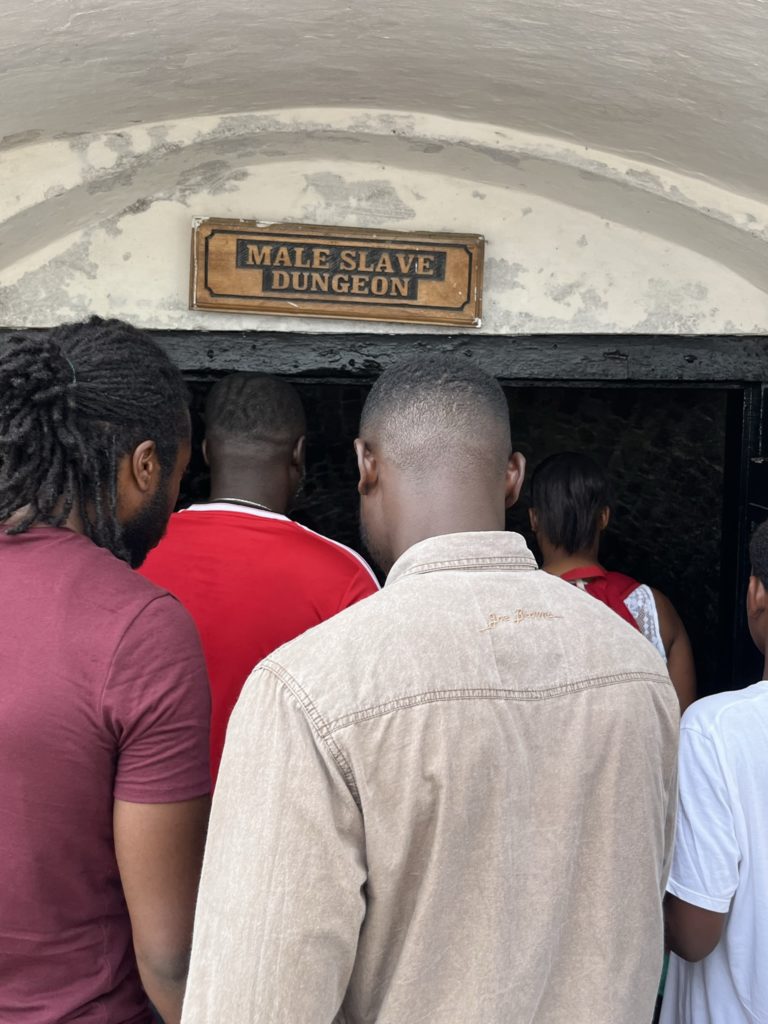
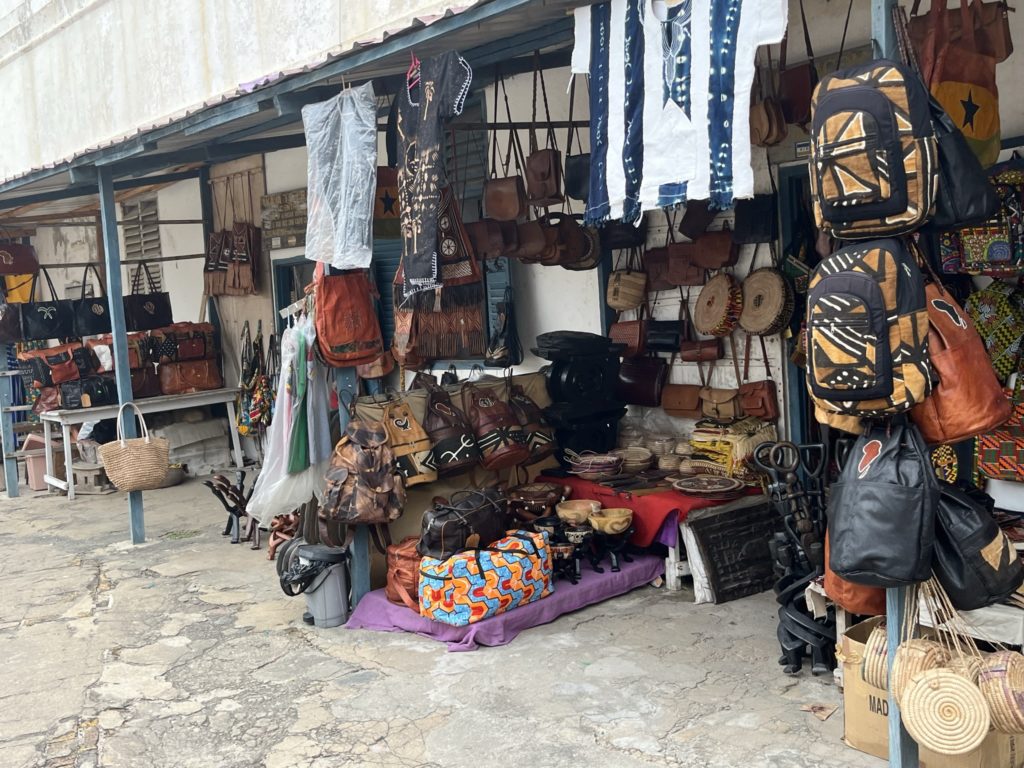
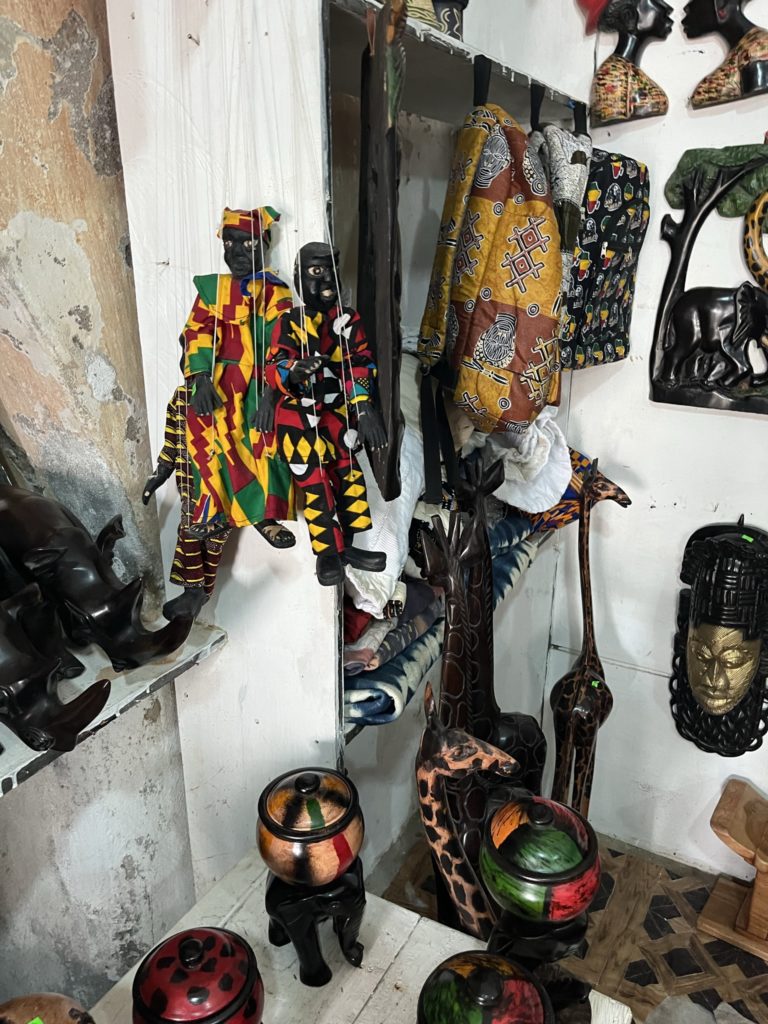
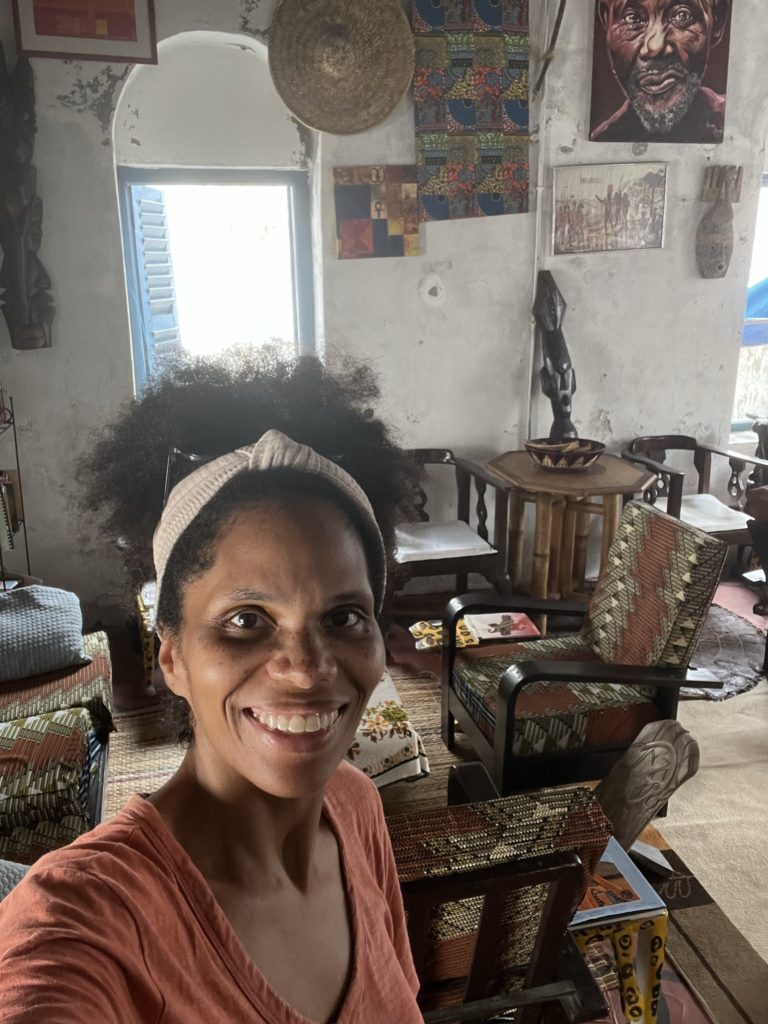
Day 9: Hair braiding – Getting our hair braided in Ghana felt like a rite of passage. It also felt like other things (It huuuurt!). There are these tiny little braiding shops along the roads here, and we can just pop in any time. We had our own hair braided this time (no added hair) so it didn’t last too long, but it’s so inexpensive ($5 a person!) that we just took it down and got it redone when the mood hit us. I’m so thankful for the option because it was so incredibly hot, and before the braids I just wanted to shave my whole head.
But I’m mostly thankful for the cultural experience: Smells of local food cooking right outside the door. People popping in to say hello and joke around, even when I don’t get the jokes. Little children running around our feet giggling. The braiders wondering why my girls and I are so tender-headed (!!!)
Everything felt different there, but the connection of “aunties” doing heads of hair is something that I know and recognize as much more than just a hairstyle. It’s the chance to be loved on and an opportunity to bond over the mundane.
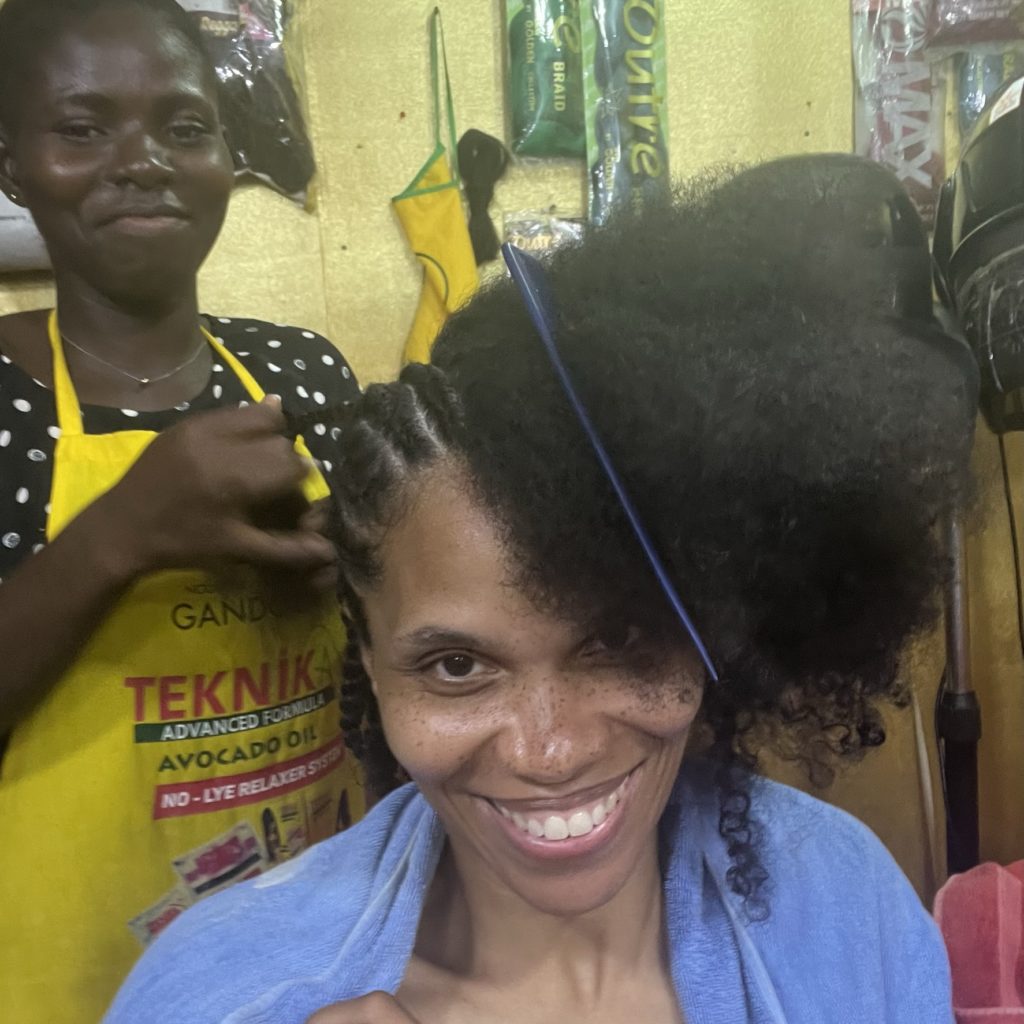
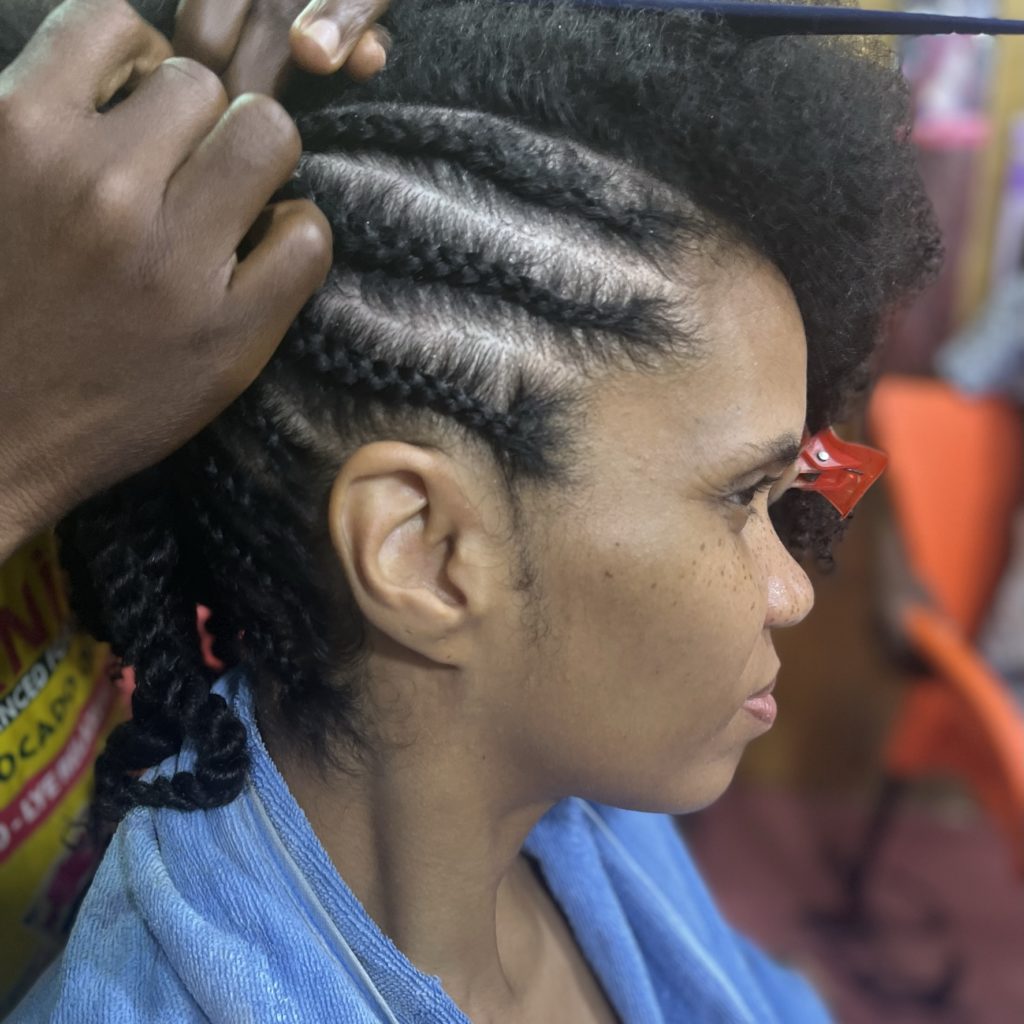
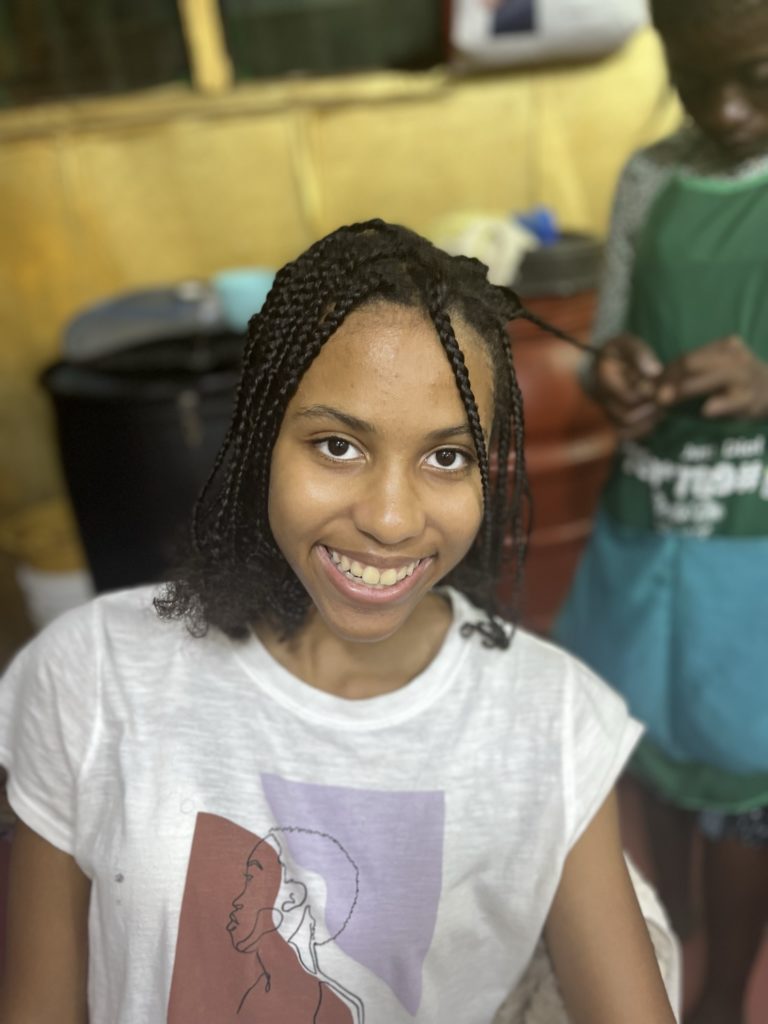
Day 10: Performances and certificates at The Spelmore Institute – This was our final day of visiting the school, and saying goodbye to the students and teachers was bittersweet. We enjoyed our time there so much, and I look forward to visiting again.
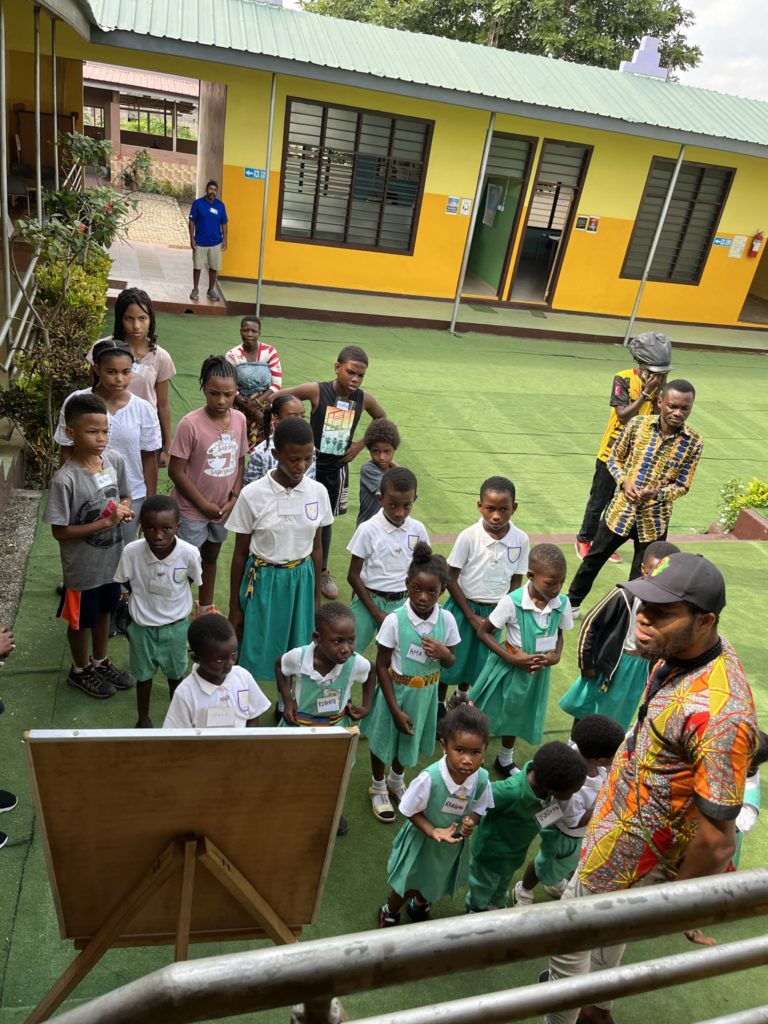
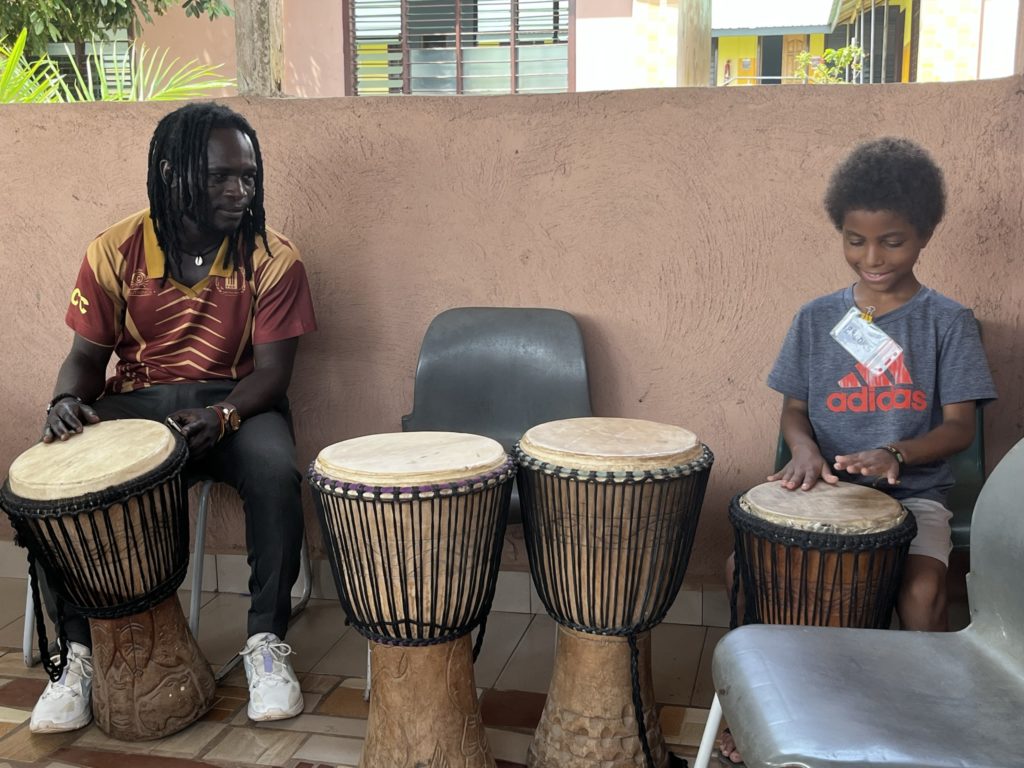
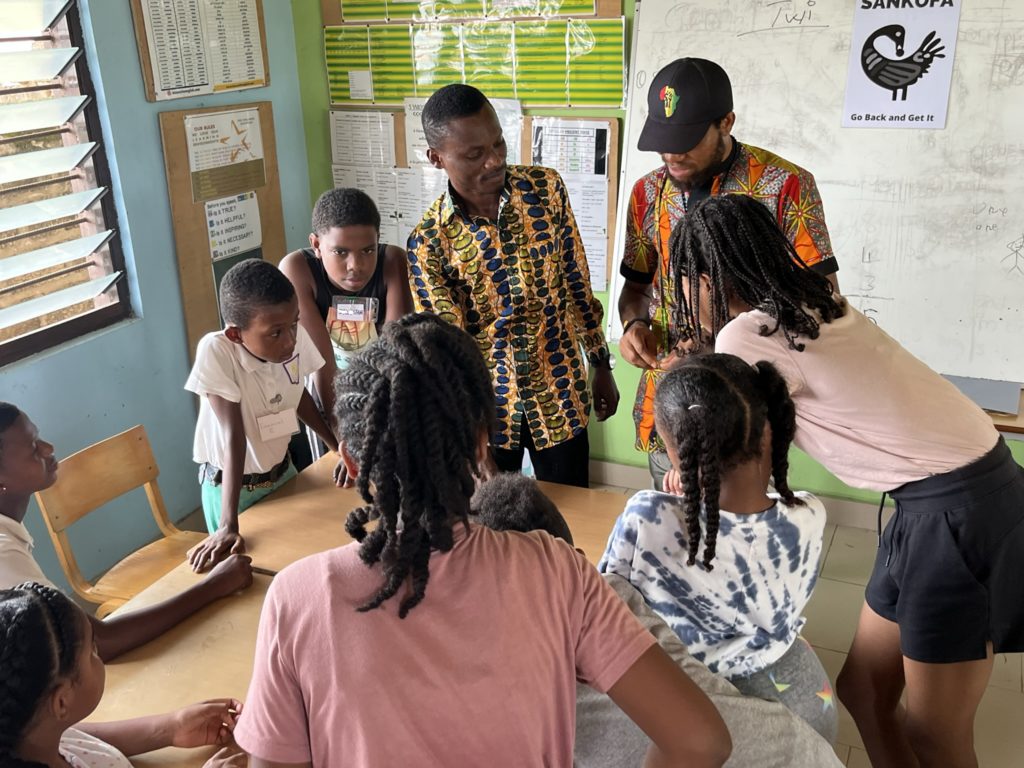
Day 11: Trip to the farm – Our hosts own a rural farm outside of the city limits, and we spent the day there learning about the vegetation, how the farm operates, and how to prepare a TRUE farm-to-table Ghanaian meal. The ladies there taught me how to make my favorite Ghanaian dish using 100% fresh ingredients harvested from the farm that day. The only thing that came from the outside was a dash of sea salt. Kontomire is a spinach stew that we scooped up and ate with boiled plantain. We cooked it outdoors over an open fire using fresh water from underground and shared a communal meal. I ordered it in many restaurants and stalls around the city, and the ingredients were a little different every time.
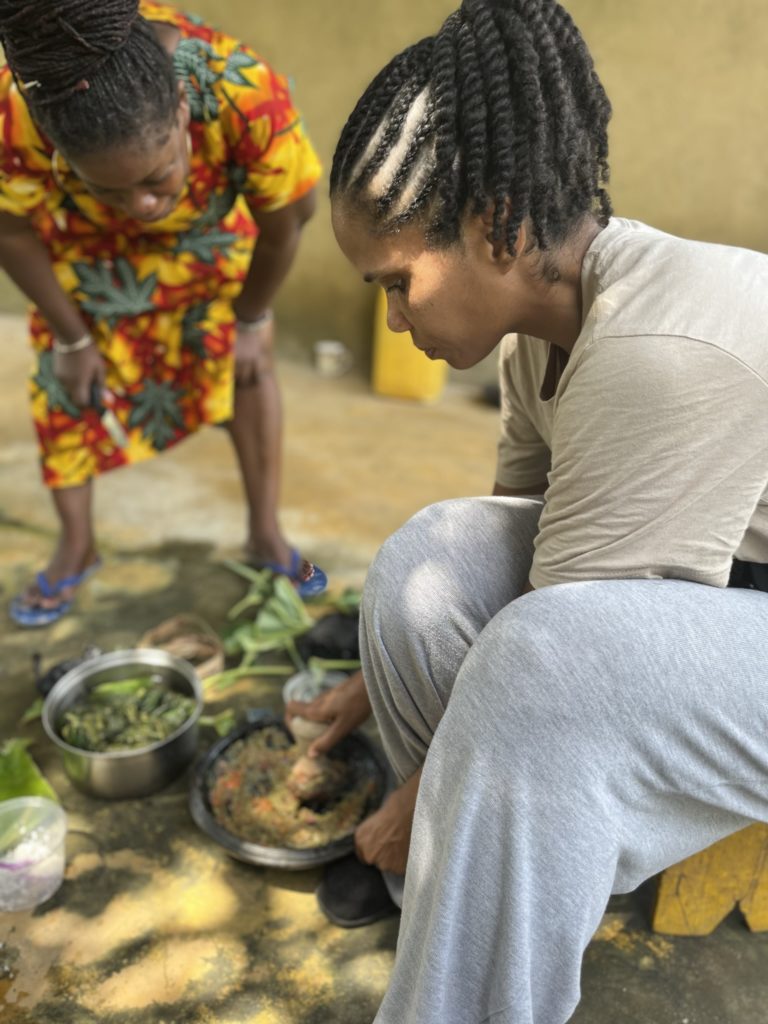
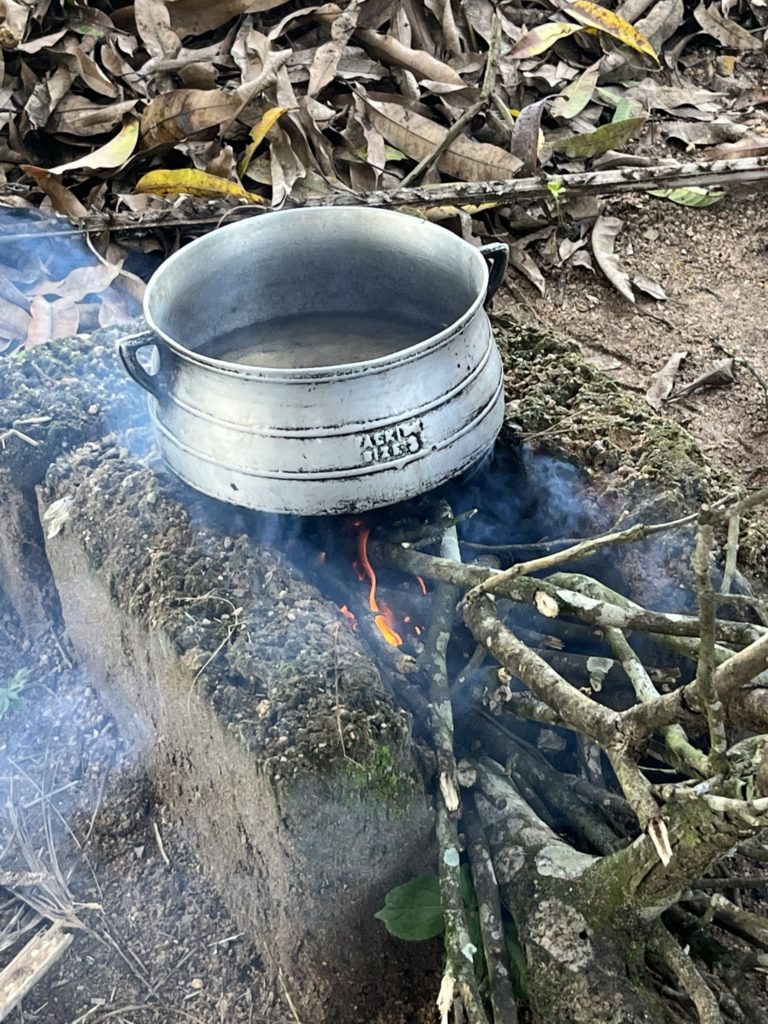
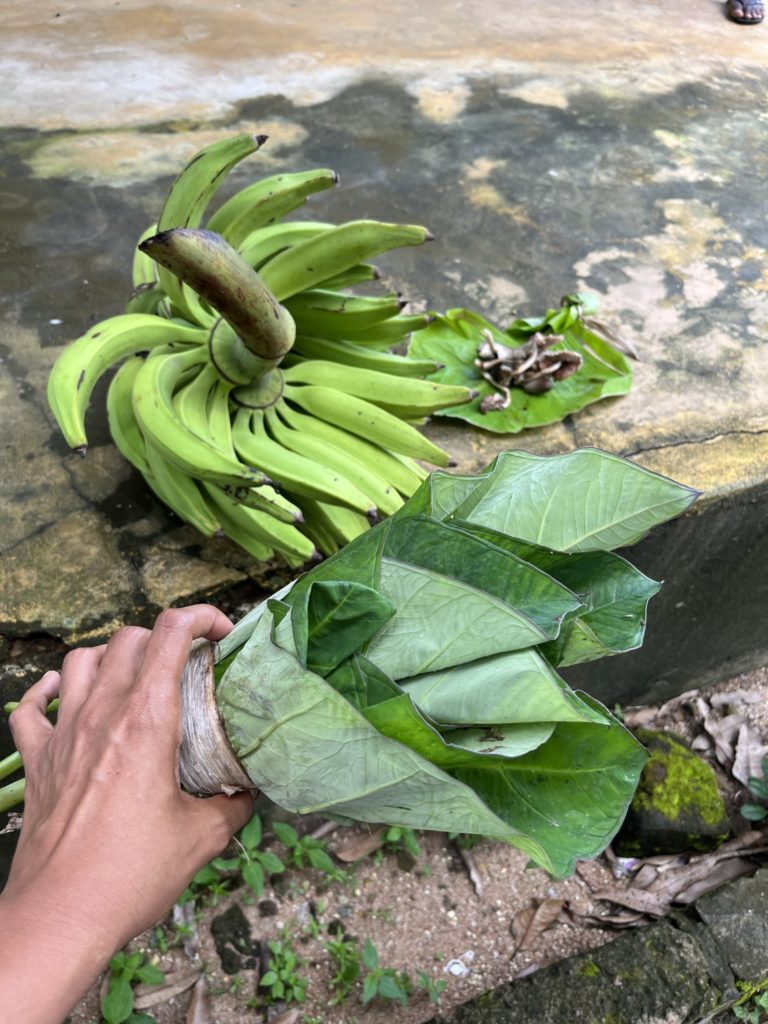
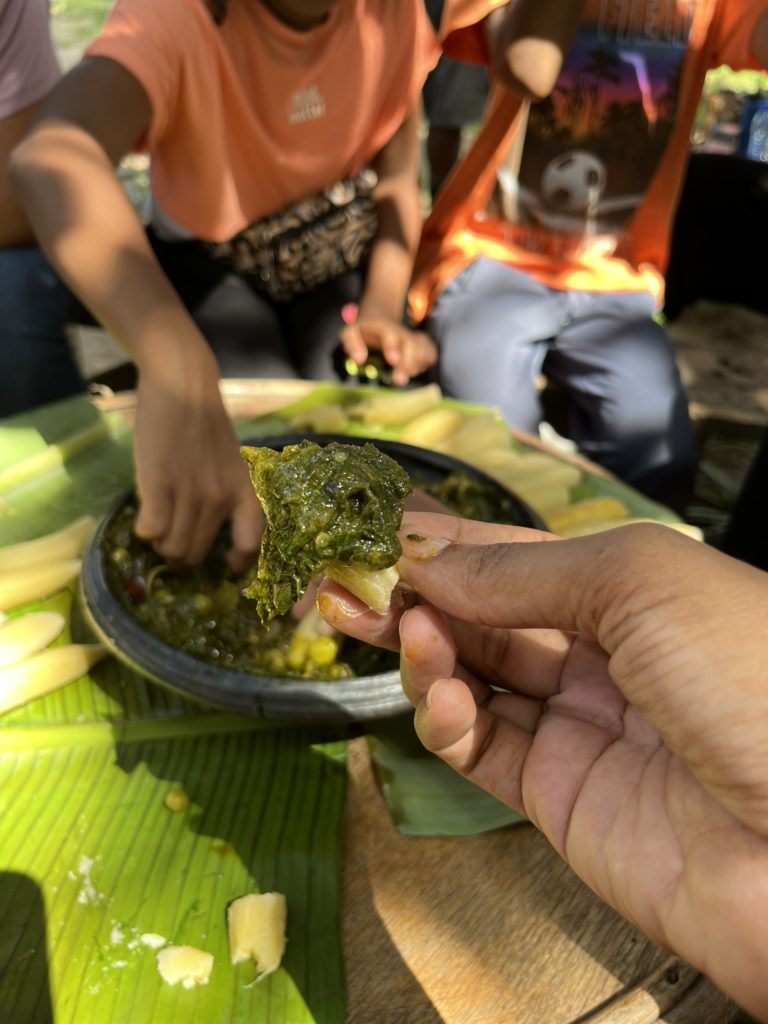
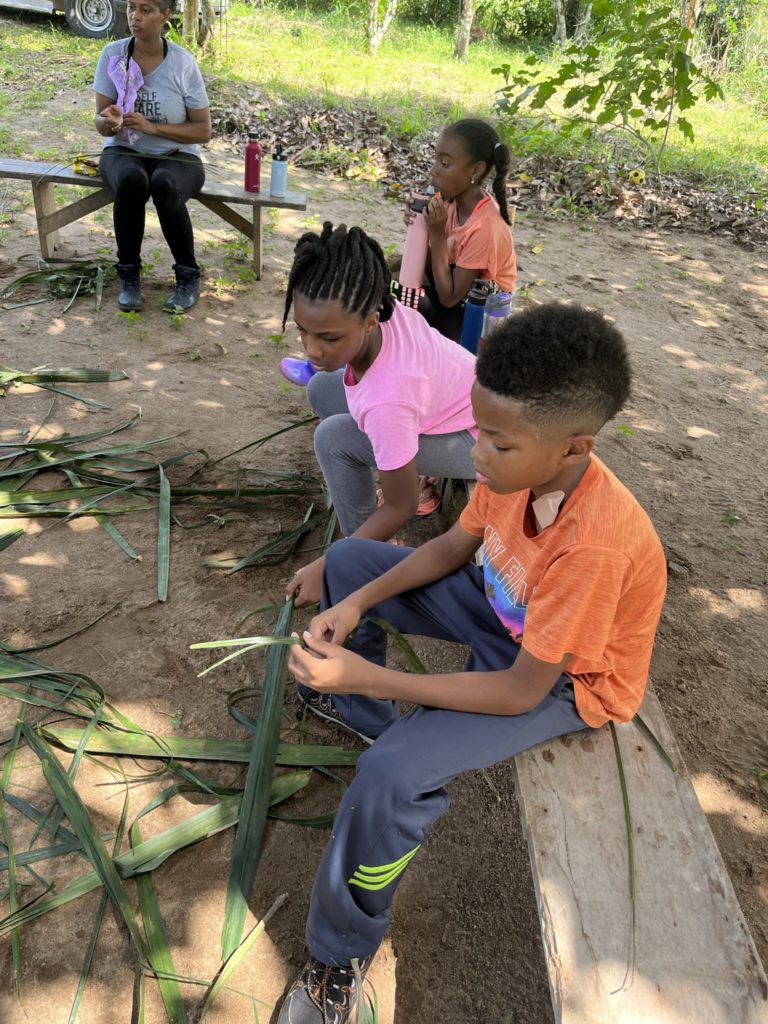
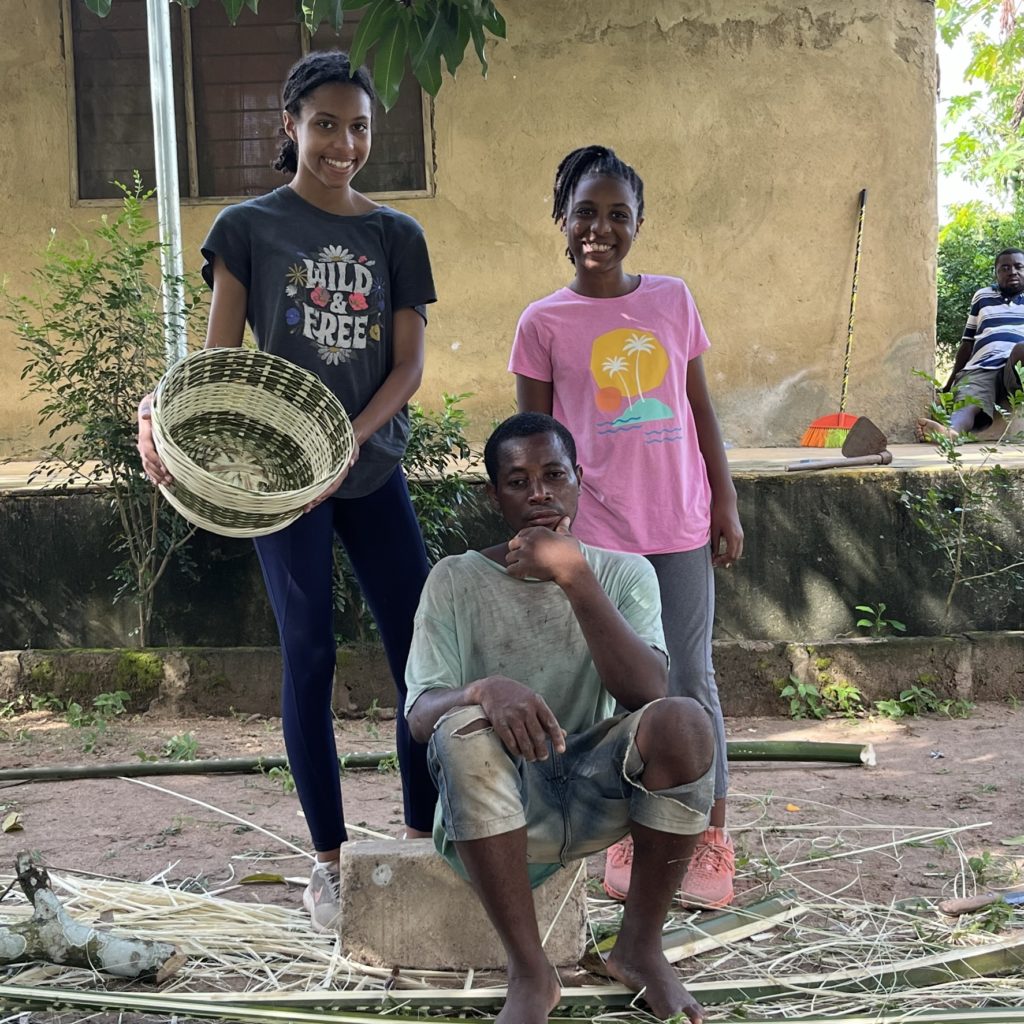
Days 12 & 13: The optional excursions offered on these days were outside of our family budget, so my family stayed behind, but we had a great time. We slept in, enjoyed some hours of leisure, read, watched a movie, and went shopping. The kids played board games, and we left the property for dinner with our friends when they returned in the evening.
We were also invited guests to a very special ceremony in a nearby village. They were installing new chiefs, and every single moment of the entire experience was new to us. It was amazing.
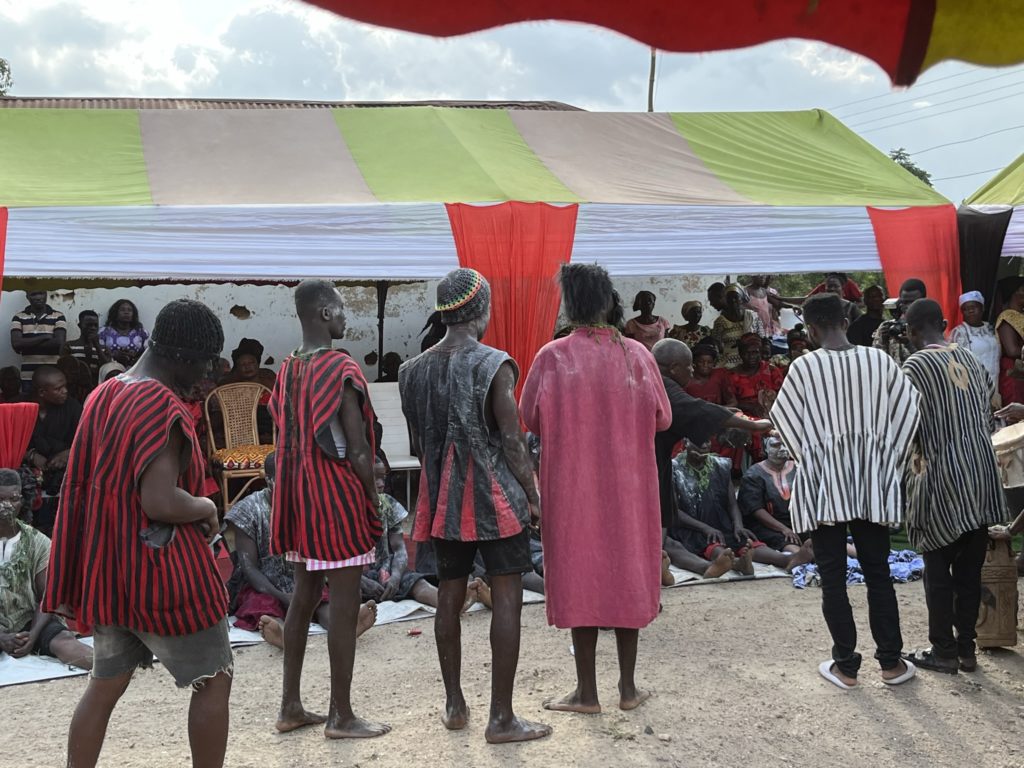
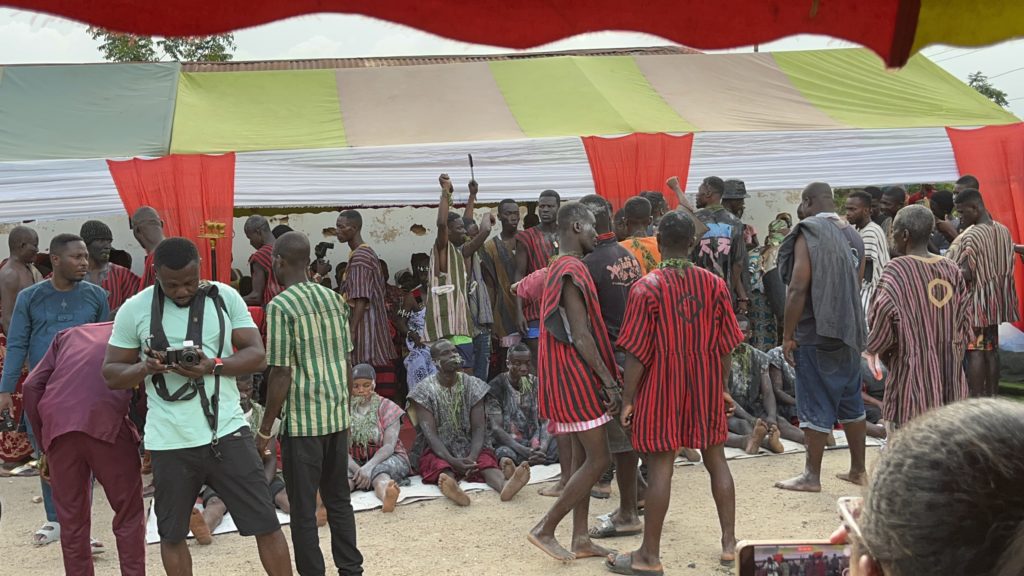
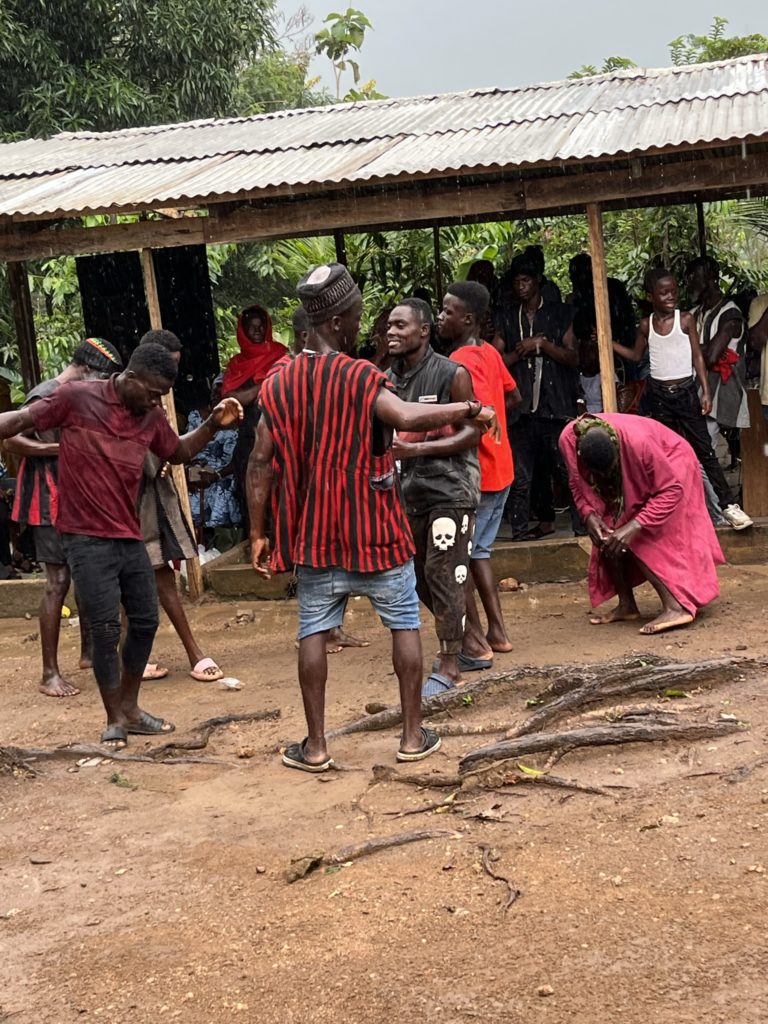
Day 14: Moving on to Part 2 of our trip! Our immersion program ended, and our hosts were gracious enough to drive us an hour away to our new temporary home for Part 2 of our Worldschooling in Ghana adventure.
Where we stayed while worldschooling in Ghana:
During the immersion program, we stayed in rustic apartments inside our host family’s compound, and we enjoyed two meals a day in the small vegan café that they run on the property.
Our first two weeks of worldschooling in Ghana were amazing! We made new friends, explored exciting places, and got a chance to live a eco-friendly lifestyle in every sense of the word.
Want to travel to Ghana? If you’re interested in learning more about the cultural immersion program we participated in, you can contact our trip organizer Fafali Nyarko at UCHUThirdOption@gmail.com. She still has space available for April and October 2023!
Check out Part 2 of our adventure in Ghana!
Join me on Instagram @heritagemomblog for more pics and details from our trip, and don’t forget to check out my book, A PLACE TO BELONG, for lots of info on how and why we travel globally with our kiddos.
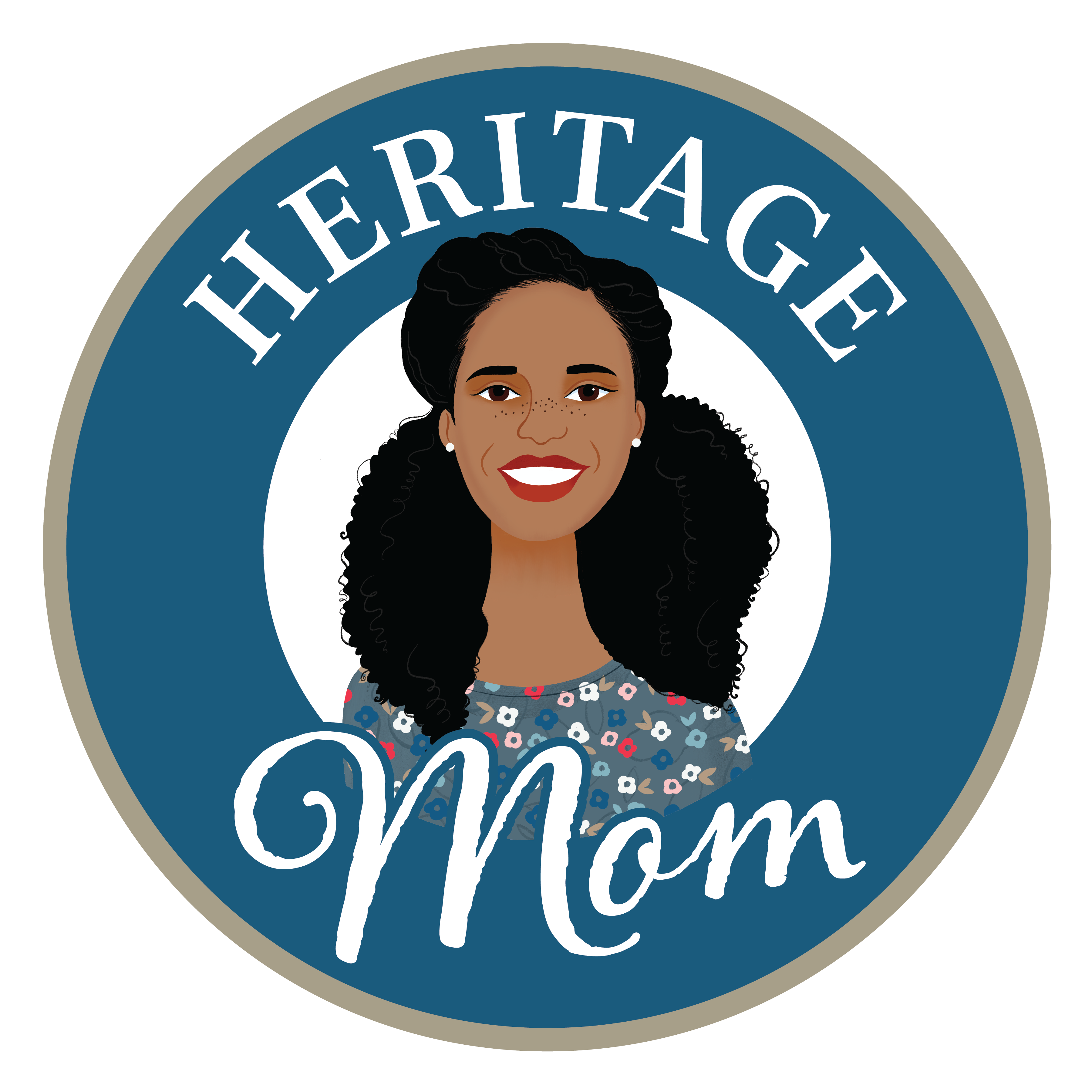
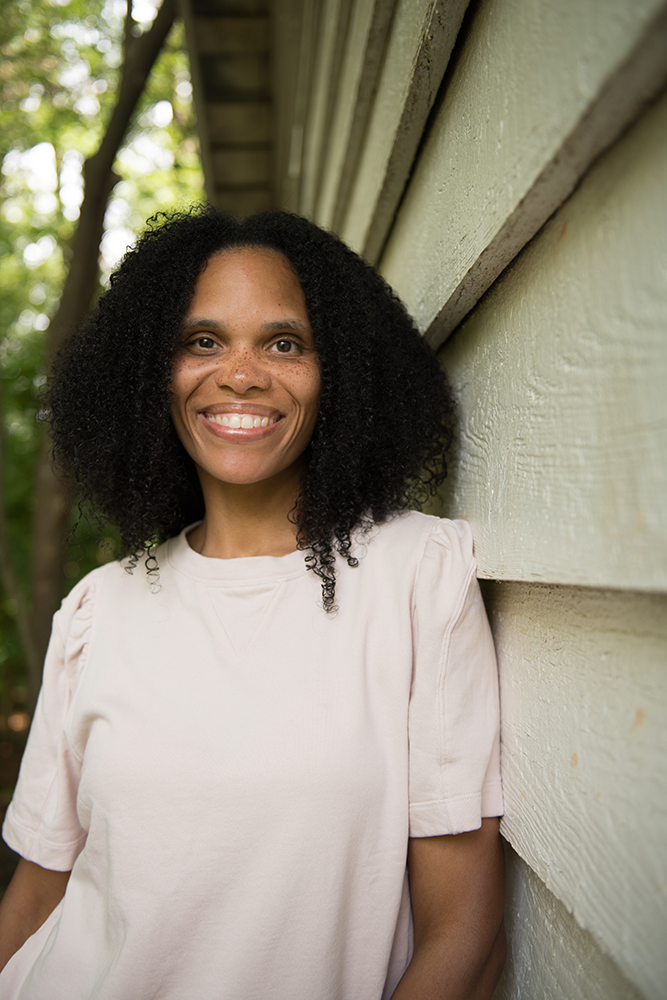
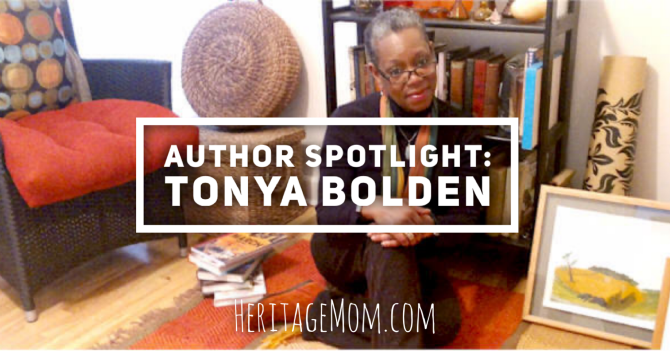


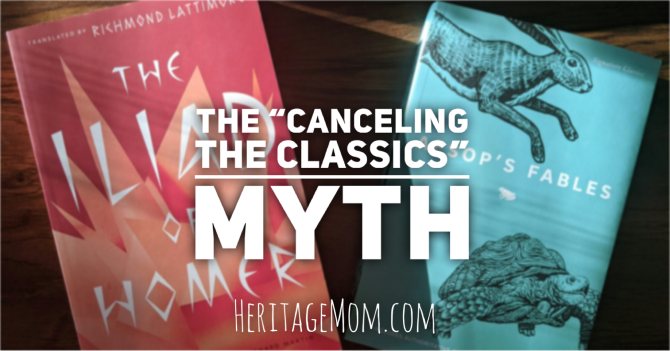
Thank you for sharing this! Although world schooling in our home will look like delving into great books, food we can make at home, crafts, learning about the ecology of different countries and anything else than doesn’t require actual travel (we have kids with health issues but we hope to travel later), these blog posts are incredibly helpful.your resources are truly whole family learning and I can’t thank you enough. I hope you are recovering now. A Place to Belongequipped me as a homeschoolmama, but perhaps more importantly, as a human and global citizen.
Thank you for giving us such a detailed account of your time in Ghana. It looks like you all had made some great memories! The resources are so helpful!